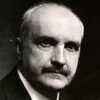Of lingering and gain-seeking make an end;
Think, while there’s time, how soon Death’s pyre may blaze;
And some brief folly mix with prudent ways:
At the fit hour ’tis sweet to unbend.[Verum pone moras et studium lucri
nigrorumque memor, dum licet, ignium
misce stultitiam consiliis brevem:
dulce est desipere in loco.]Horace (65-8 BC) Roman poet and satirist [Quintus Horacius Flaccus]
Odes [Carmina], Book 4, # 12, l. 25ff (4.12.25-28) (13 BC) [tr. Marshall (1908)]
(Source)
Usually subtitled by translators "To Virgil" or "Invitation to Virgil." There has been great controversy amongst scholars whether the Virgil mentioned in the ode refers to the famous poet who composed the Aeneid, among other works. The two knew each other, but that Virgil died in 19 BC. Some suggest this was an older poem of Horace's, finished and inserted into this later, final volume by him.
(Source (Latin)). Alternate translations:Think Life is short, forget thy fears,
And eager thoughts of Gain,
Short Folly mix with graver Cares,
'Tis decent sometimes to be vain.
[tr. Creech (1684)]Come, quit those covetous thoughts, those knitted brows,
Think on the last black embers, while you may,
And be for once unwise. When time allows,
'Tis sweet the fool to play.
[tr. Conington (1872)]But lay aside delay, and the desire of gain; and, mindful of the gloomy [funeral] flames, intermix, while you may, your grave studies with a little light gayety: it is delightful to give a loose on a proper occasion.
[tr. Smart/Buckley (1853)]To the winds with base lucre and pale melancholy ! --
In the flames of the pyre these, alas! will be vain,
Mix your sage ruminations with glimpses of folly, --
'T is delightful at times to be somewhat insane!
[tr. Martin (1864)]But put aside delays and care of gain,
Warned, while yet time, by the dark death-fires; mix
With thought brief thoughtlessness; to be unwise
In time and place is sweet.
[tr. Bulwer-Lytton (1870)]Then lay aside delays, pursuit of gain, and, mindful fo the funeral pyre, intermix, while it is permitted, a temporary foolishness with thy worldly plans. There is pleasure in indulging in folly on special occasions.
[tr. Elgood (1893)]Quick! ere the lurid death-fire's day,
Drive thou the lust of gain away!
Thy wisdom with unwisdom grace:
'Tis well to rave, in time and place.
[tr. Gladstone (1894)]Come! a truce to delay, and the desire of gain!
And, all mindful, in time, of the dark fun'ral fires.
Mingle with your grave plans some little folly's fling,
Sweet is folly at fitting times.
[tr. Phelps (1897)]Mingle a little folly with your wisdom; a little nonsense now and then is pleasant.
[Source (1908)]But put aside delay and thirst for gain, and, mindful of Death’s dark fires, mingle, while thou mayst, brief folly with thy wisdom. ’Tis sweet at the fitting time to cast serious thoughts aside.
[tr. Bennett (Loeb) (1912), "The Delights of Spring"]Quick, quit your usury. Time is fleet.
Think, while you may, of funeral flames,
And blend brief folly with your aims;
Folly, in folly's hour, is sweet.
[tr. Mills (1924)]Then come at once and pause for breath
In chasing wealth. Remembering death
And death's dark fires, mix, while you may,
Method and madness, work and play.
Folly is sweet, well-timed.
[tr. Michie (1963)]Don’t linger, don’t stop to be sensible,
Let a little folly mix with your wisdom,
Be aware of death’s dark fires:
Frivolity is sweet, in season.
[tr. Raffel (1983)]And, heedful of death's black fire, consent for a while
To mix a little pleasure in with your prudence.
It's right to be foolish when the time is right.
[tr. Ferry (1997)]Be mindful, while you may,
of black-smoked funeral pyres
and blend a bit of folly with your wisdom.
O it is sweet at the proper time
to play the fool!
[tr. Alexander (1999)]But abolish delay, and desire for profit,
and, remembering death’s sombre flames, while you can,
mix a little brief foolishness with your wisdom:
it’s sweet sometimes to play the fool.
[tr. Kline (2015), "Spring"]
Roald Dahl had Willy Wonka use the thematically similar line "A little nonsense now and then / Is relished by the wisest men" in both his screenplay for the movie Willy Wonka and the Chocolate Factory (1971) and in the book Charlie and the Great Glass Elevator. For more information in this variant and its possible origins, see Quote Origin: A Little Nonsense Now and Then is Relished by the Wisest Men – Quote Investigator®.
Quotations about:
mortality
Note not all quotations have been tagged, so Search may find additional quotes on this topic.
Those who go forth to the battle never return without holes in their ranks, like gaping wounds. Pity of all pities that those who lead never learn, and the few wise men among those who follow never quite avail to teach. But faith given and allegiance pledged are stronger than fear, thought Cadfael, and that, perhaps, is virtue, even in the teeth of death. Death, after all, is the common expectation from birth. Neither heroes nor cowards can escape it.
Ellis Peters (1913-1995) English writer, translator [pseud. of Edith Mary Pargeter, who also wrote under the names John Redfern, Jolyon Carr, Peter Benedict]
Dead Man’s Ransom, ch. 1 (1984)
(Source)
On return of Shrewsbury's troops after fighting battles for King Stephen against the Earls of Chester and Lincoln.
Saint Luke was a Saint and a Physitian, yet is dead.
George Herbert (1593-1633) Welsh priest, orator, poet.
Jacula Prudentum, or Outlandish Proverbs, Sentences, &c. (compiler), # 1008 (1640 ed.)
(Source)
Will the gods grant a morrow for to-day?
No mortal can declare;
Give! all thou giv’st with open hand away
Escapes thy greedy heir.
Once thou art dead, once Minos on his bench
Thy doom for thee hath writ,
Birth, eloquence, devotion, nought can wrench
Thy spirit from the pit,
Torquatus!
[Quis scit an adiciant hodiernae crastina summae
tempora di superi?
Cuncta manus avidas fugient heredis amico
quae dederis animo.
Cum semel occideris et de te, splendida, Minos
fecerit arbitria,
non, Torquate, genus, non te facundia, non te
restituet pietas.]Horace (65-8 BC) Roman poet and satirist [Quintus Horacius Flaccus]
Odes [Carmina], Book 4, # 7, l. 17ff (4.7.17-24) (23 BC) [tr. Gladstone (1894)]
(Source)
(Source (Latin)). Alternate translations:Who knows if Iove unto thy life's past score
Will adde one morning more?
When thou art dead, and Rhadamanthus just
Sentence hath spoke thee dust,
Thy blood, nor eloquence can ransome thee,
No nor thy piety.
[tr. Fanshaw; ed. Brome (1666)]Who knows if stubborn Fate will prove so kind,
And joyn to this another day?
What e're is for thy greedy Heir design'd,
Will slip his Hands, and fly away:
When thou art gone, and Minos Sentence read,
Torquatus there is no return,
Thy Fame, nor all thy learned Tongue can plead,
Nor goodness shall unseal the Urn.
[tr. Creech (1684)]Can Hope assure you one more day to live
From powers above?
You rescue from your heir whate'er you give
The self you love.
When life is o'er, and Minos has rehearsed
The grand last doom,
Not birth, nor eloquence, nor worth, shall burst
Torquatus' tomb.
[tr. Conington (1872)]Who knows whether the gods above will add to this day’s reckoning the space of to-morrow? Every thing, which you shall indulge to your beloved soul, will escape the greedy hands of your heir. When once, Torquatus, you shall be dead, and Minos shall have made his awful decisions concerning you; not your family, not you eloquence, not your piety shall restore you.
[tr. Smart/Buckley (1853)]Who knows, if they who all our Fates control,
Will add a morrow to thy brief to-day?
Then think of this, -- What to a friendly soul
Thy hand doth give shall 'scape thine heir's rapacious sway.
When thou, Torquatus, once hast vanish'd hence,
And o'er thee Minos' great decree is writ,
Nor ancestry, nor fire-lipp'd eloquence,
Nor all thy store of wealth to give thee back were fit.
[tr. Martin (1864)]Who knows if the gods will yet add a to-morrow
To the sum of to-day?
Count as saved from an heir's greedy hands all thou givest
To that friend -- thine own self.
When once dead, the resplendent tribunal of Minos
Having once pronounced doom,
Noble birth, suasive tongue, moral worth, O Torquatus,
Reinstate thee no more.
[tr. Bulwer-Lytton (1870)]Who can tell whether the Gods above will add an existence for us during to-morrow to that of to-day? All, however, thou mayest indulge thyself in will escape the greedy grasp of thy heir. When once thou hast fallen, and Minos shall have passed his impartial judgment upon thee, neither thy pedigree, Torquatus, thine eloquence, nor thy goodness, will restore thee back to earth.
[tr. Elgood (1893)]Who can tell whether the Gods will add the hours of tomorrow
On to the sum of to-day?
All will escape your heir's greedy clutches, which with a friendly
Mind you have spent in your life.
For, when once thou hast died, and over thee Minos in judgment
Hath made his grand last award,
Then neither birth shall avail, Torquatus; nor eloquence bring thee
Back, nor thy fear of the Gods.
[tr. Phelps (1897)]Who knoweth if the gods above may add to-morrow's time
To this day's count?
All that thou givest to thy soul's delighting will escape
An heir's greedy hands.
When once thou'rt dead, and Minos o'er thee shall have made
August decision.
Not, O Torquatus, not thy birth, or flow of word, not piety,
Will reinstate thee.
[tr. Garnsey (1907)]Who knows that Heaven to this day's gift will please
To-morrow's sun to lend?
And all thy goods a greedy heir will seize,
Save what thyself did spend.
Once thou art dead, and Minos' high decree
Shall speak to seal thy doom
Though noble, pious, eloquent thou be,
These snatch not from the tomb.
[tr. Marshall (1908)]Who knows whether the gods will add to-morrow’s time to the sum of today ? All things which thou grantest to thine own dear soul, shall escape the greedy clutches of thine heir. When once thou hast perished and Minos has pronounced on thee his august judgment, not family, Torquatus, nor eloquence, nor righteousness shall restore thee again to life.
[tr. Bennett (Loeb) (1912)]Who knows whether the gods who reign above
Add a new day's span to the sum of this?
Live while you live; that which the soul you love,
Your self, enjoys, your greedy heir will miss.
Once you are dead, once Minos, judge of men,
Has fixed by doom august your destiny,
Not rank, Torquatus, shall restore you then;
Not eloquence; not even piety.
[tr. Mills (1924)]Who knows whether the all-high gods intend an addition
Made to the sum of today?
Give to your own dear self: that gift is the only possession
Fingers of heirs cannot grasp.
Once you are dead, Torquatus, and Minos delivers his august
Verdict upon your affairs,
No blue blood, no good deeds done, no eloquent pleading
Ever shall conjure you back.
[tr. Michie (1963)]Who knows if the gods will add tomorrow's
Hours to your time today?
Whatever you give yourelf, here, now,
No greedy heir can clutch at.
Torquatus, once you're buried, once
The Lord of Death has judged you,
Nothing will bring you back, no ancient
Name, no noble words, no one's love.
[tr. Raffel (1983)]Who knows whether tomorrow the gods will have
Anything more to give than they have given?
What you can give to your own dear heart today
Will not fall into the clutch of your heir tomorrow.
Torquatus, once you've died and Minos the judge
Has spoken his words down there, then neither rank
Nor eloquence nor virtue -- none of these --
Can ever bring you back to life again.
[tr. Ferry (1997)]Who knows whether the celestial gods will add tomorrow’s time to the sum of today’s. All which you bestow upon your very own soul escapes the avid hands of your heir. Once you are dead and Minos has pronounced on you his solemn judgment, neither your noble origin, Torquatus, nor your eloquence, nor your piety will bring you back to life.
[tr. Alexander (1999)]Who knows whether the gods above will add tomorrow’s hours
to the total of today?
All those you devote to a friendly spirit will escape from
the grasping hands of your heirs.
When once you’re dead, my Torquatus, and Minos pronounces
his splendid judgement on you,
no family, no eloquence, no righteousness even,
can restore you again.
[tr. Kline (2015)]
Yet new moons swift replace the seasons spent;
But when we forth are thrust,
Where old Aeneas, Tullus, Ancus went,
Shadow are we and dust.
[Damna tamen celeres reparant caelestia lunae:
nos ubi decidimus
quo pius Aeneas, quo dives Tullus et Ancus,
pulvis et umbra sumus.]Horace (65-8 BC) Roman poet and satirist [Quintus Horacius Flaccus]
Odes [Carmina], Book 4, # 7, l. 13ff (4.7.13-16) (23 BC) [tr. Marshall (1908)]
(Source)
"To Torquatus." (Source (Latin)). Alternate translations:But the decays of time, Time doth repair:
When we once plunged are
Where good Aeneas, with rich Ancus wades,
Ashes we are, and shades.
[tr. Fanshawe; ed. Brome (1666)]When we shall view the gloomy Stygian Shore,
And walk amongst the mighty Dead
Where Tullus, where Aeneas went before:
We shall be Dust, and empty shade.
[tr. Creech (1684)]Yet the swift moons repair Heaven's detriment:
We, soon as thrust
Where good Aeneas, Tullus, Ancus went,
What are we? dust.
[tr. Conington (1872)]Nevertheless the quick-revolving moons repair their wanings in the skies; but when we descend [to those regions] where pious Æneas, where Tullus and the wealthy Ancus [have gone before us], we become dust and a mere shade.
[tr. Smart/Buckley (1853)]But moons revolve, and all again is bright:
We, when we fall, as fell the good and just
Æneas, wealthy Tullus, Ancus wight,
Are but a nameless shade, and some poor grains of dust.
[tr. Martin (1864)]But the swift moons restore change and loss in the heavens,
When we go where have gone
Sire Æneas, and Tullus, and opulent Ancus,
We are dust and a shade.
[tr. Bulwer-Lytton (1870)]The swiftly-revolving Months however restore the gifts of the Seasons but we, when we have descended where good Æneas, wealthy Tullus, and Ancus, have gone, are dust and shadow.
[tr. Elgood (1893)]The hastening moons all waste in heaven repair:
We, when we once descend
To Tullus, Ancus, sire Aeneas, there
In dust and shadow end.
[tr. Gladstone (1894)]Yet the revolving Moons repair the losses of heaven;
But we, when once we have gone
Where pious Æneas, rich Tullus, and Ancus, have vanish'd,
Lo! dust and ashes are we!
[tr. Phelps (1897)]Still, rapid moving moons repair the heavenly losses:
We, when we fall
Whither the good Æneas fell, Tullus and Ancus rich,
Are dust and shadow.
[tr. Garnsey (1907)]Yet the swiftly changing moons repair their losses in the sky. We, when we have descended whither righteous Aeneas, whither rich Tullus and Ancus have gone, are but dust and shadow.
[tr. Bennett (Loeb) (1912)]Yet, fast as moons wane in the sky, as fast
They wax; but we, poor mortals, when we fare
Whither Aeneas, Tullus, Ancus passed,
Are naught but dust here, naught but shadows there.
[tr. Mills (1924)]Moons make speed to repair their heavenly losses, but not so
We, who, when once we have gone
Downwards to join rich Tullus and Ancus and father Aeneas,
Crumble to shadow and dust.
[tr. Michie (1963)]Whatever the skies lose, quick-running
Months repair -- but men, good Aeneas
Or rich Tullus or Ancus king of Rome,
Die and turn to shadows, to dust.
[tr. Raffel (1983)]Yet after a time, and time and time again,
The moon restores itself in the nighttime sky.
But when it's time for us to go down there
Where Aeneas went, the pious, and Tullus the rich,
And old King Ancus Martius, and all the others,
Then we're nothing but dust, we're nothing but shadows.
[tr. Ferry (1997)]And yet the swiftly phasing moons repair their celestial mishaps. While we, once descended where dwells pious Aeneas and wealthy Tullus and Ancus, dust and shadow are.
[tr. Alexander (1999)]Yet swift moons are always repairing celestial losses:
while, when we have descended
to virtuous Aeneas, to rich Tullus and Ancus, our kings,
we’re only dust and shadow.
[tr. Kline (2015)]
What is the worst of woes that wait on Age?
What stamps the wrinkle deeper on the brow?
To view each loved one blotted from Life’s page,
And be alone on earth, as I am now.George Gordon, Lord Byron (1788-1824) English poet
Childe Harold’s Pilgrimage, Canto 2, st. 98 (1812)
(Source)
He that feares death lives not.
George Herbert (1593-1633) Welsh priest, orator, poet.
Jacula Prudentum, or Outlandish Proverbs, Sentences, &c. (compiler), # 781 (1640 ed.)
(Source)
Ah, make the most of what we yet may spend,
Before we too into the Dust Descend;
Dust into Dust, and under Dust, to lie,
Sans Wine, sans Song, sans Singer and — sans End!Omar Khayyám (1048-1123) Persian poet, mathematician, philosopher, astronomer [عمر خیام]
Rubáiyát [رباعیات], Bod. # 129 [tr. FitzGerald (1859), # 23]
(Source)
FitzGerald used the same translation for all his editions, though the number changed -- #23 in the 1st, #26 in the 2nd, and #24 in the 3rd, 4th, and 5th. editions.
Alternate translations:Yon rolling heaven for our destruction, yours and mine,
Aims its stroke at our lives, yours and mine;
Come, live, sit on the grass - it will not be long
Ere grass grows out of our dust, yours and mine.
[tr. Cowell (1858), # 3]This wheel of heaven seeks my destruction and thine, it plots against my soul and thine. Come, seat thyself upon the grass, for in a little while fresh grass will spring from this dust of mine and thine.
[tr. McCarthy (1879), # 358]The wheel of heaven still holds his set design
To take away thy life, O love and mine,
Sit we on this green turf, 'twill not be long
Ere turf will hide my dust along with thine
[tr. Whinfield (1882), # 205]O Love, for ever doth heaven's wheel design
To take away thy precious life, and mine;
Sit we upon this turf, 't will not be long
Ere turf shall grow upon my dust, and thine!
[tr. Whinfield (1883), # 390]The "wheel of heaven" in its Fatal Play
Will soon our Breath of Being steal away, --
Come rest thee on this bank, for from our dust
Will spring the Vedure at no distant day.
[tr. Garner (1887), 3.3]The wheel of Heaven thy death and mine is bringing, friend!
Over our lives the cloud of doom 't is flinging, friend!
Come, sit upon this turf, for little time is left
Ere fresher turf shall from our dust be springing, friend!
[tr. M. K. (1888)]Beautiful wheel of blue above my head,
Will you be turning still when I am dead?
Were you still turning long before I came? --
O bitter thought to take with me to bed.
[tr. Le Gallienne (1897), # 54]The heavenly vault, for the sake of my destruction and thine,
wages war upon my pure sole and thine;
Sit upon the green sward, O my Idol! for it will not be long
ere that green sward shall grow from my dust and thine.
[tr. Heron-Allen (1898), # 129]Against our dear lives holding its design,
This wheel of Heaven doth plot thy death and mine;
Come sit upon this grass, 'twill not be long
Ere verdure springs up from my dust and thine.
[tr. Thompson (1906), # 442]The Heavens, that they may destroy us both,
On our pure souls to war are nothing loth;
Sit down, my Idol, on the grass, for soon
My dust and thine shall aid its vernal growth.
[tr. Talbot (1908), # 129]This wheel of Heaven, for the sake of my destruction
and thine, has designs upon my pure soul and thine.
Sit down on the grass, o idol, for it will not be long
ere grass shall spring from my dust and thine.
[tr. Christensen (1927), # 35]This Wheel of the Spheres revolves for your annihilation and for mine,
It has evil intentions on your pure soul and on mine.
Rest on the meadow, my Iove, for not much time will pass.
Until grass springs from your dust and from mine.
[tr. Rosen (1928), # 262]This Wheel of time effaces me and thee,
To slaughter us it chases me and thee;
Sit on the lawn and love, for time arrives
When lawn would hide our traces, me and thee.
[tr. Tirtha (1941), # 2.53]Allow no shadow of regret to cloud you,
No absurd grief to overcast your days.
Never renounce love-songs, or lawns, or kisses
Until your clay lies mixed with elder clay.
[tr. Graves & Ali-Shah (1967), # 24]This wheel of heaven, in order to destroy me and thee, has fell purpose against my innocent soul and thine: sit on the grass, and drink wine, and be happy, for this grass shall spring from my dust and thine.
[tr. Bowen (1976), # 14]The wheel of Fate is crooked. It destroys
Such innocent young souls as yours and mine:
So, joyously, sit down upon the grass
And while away this hour in drinking wine.
Alas! the herbage which delights our eyes,
On which you now recline your lovely head,
Is rooted in the dust of loves -- and
Will spring from ours one day when we are dead.
[alt. tr. Bowen (1976), # 14]Don’t permit sorrow to be your friend
Sadness and pain become your trend
Don’t let the book or the farm you tend
Rule your life before to earth you descend.
[tr. Shahriari (1998), literal]Before to dust you shall return
There is one thing that you must learn
Sorrow and pain your soul shall burn
Joy and bliss to light shall turn.
[tr. Shahriari (1998), figurative]
We vaguely know the rules, and the system of scoring, but for God’s sake why don’t they tell us how long the game is?
Mignon McLaughlin (1913-1983) American journalist and author
The Second Neurotic’s Notebook, ch. 5 (1966)
(Source)
Ah, Postumus! they fleet away,
Our years, nor piety one hour
Can win from wrinkles and decay,
And Death’s indomitable power.
[Eheu fugaces, Postume, Postume,
labuntur anni nec pietas moram
rugis et instanti senectae
adferet indomitaeque morti.]Horace (65-8 BC) Roman poet and satirist [Quintus Horacius Flaccus]
Odes [Carmina], Book 2, # 14, l. 1ff (2.14.1-4) (23 BC) [tr. Conington (1872)]
(Source)
"To Postumus." It is unclear which acquaintance of Horace this was addressed to; the name is popularly associated (back to Horace's time) with being given to a child born after the death of their father (which gives it a certain irony here); in reality, it was originally given to the (broader) category of last children of a father.
(Source (Latin)). Alternate translations:Ah Posthumus! the years of man
Slide on with winged pace, nor can
Vertue reprieve her friend
From wrinkles, age, and end.
[tr. Fanshawe; ed. Brome (1666)]Time (Posthumus) goes with full sail,
Nor can thy honest heart avail
A furrow'd brow, old age at hand,
Or Death unconquer'd to withstand:
One long night,
Shall hide this light
From all our sight,
And equal Death
Shall few dayes hence,
stop every breath.
[tr. S. W.; ed. Brome (1666)]The whirling year, Ah Friend! the whirling year Rouls on apace;
And soon shall wrinkles plough thy wither'd Face:
In vain you wast your Pious breath,
No prayers can stay, no vows defer
The swift approach of Age, and conqu'ring Death.
[tr. Creech (1684)]Alas! my Postumus, my Postumus, the fleeting years glide on; nor will piety cause any delay to wrinkles, and advancing old age, and insuperable death.
[tr. Smart/Buckley (1853)]Ah, Posthumus, the years, the fleeting years
Still onwards, onwards glide;
Nor mortal virtue may
Time's wrinkling fingers stay,
Nor Age's sure advance, nor Death's all-conquering stride.
[tr. Martin (1864)]Postumus, Postumus, the years glide by us,
Alas! no piety delays the wrinkles,
Nor old age imminent,
Nor the indomitable hand of Death.
[tr. Bulwer-Lytton (1870)]Ah! Postumus! Devotion fails
The lapse of gliding years to stay,
With wrinkled age it nought avails
Nor conjures conquering Death away.
[tr. Gladstone (1894)]Ah me! how quickly, Postumus, Postumus,
Glide by the years! nor even can piety
Delay the wrinkles, and advancing
Age, and attacks of unconquer'd Hades.
[tr. Phelps (1897)]Alas! Postumus, Postumus, the fleeing years
Slip by, and duteousness does not give pause
To wrinkles, or to hasting age,
Or death unconquerable.
[tr. Garnsey (1907)]Ah! Postumus, Postumus, fast fly the years,
And prayers to wrinkles and impending age
Bring not delay; nor shalt assuage
Death's stroke with pious tears.
[tr. Marshall (1908)]Alas, O Postumus, Postumus, the years glide swiftly by, nor will righteousness give pause to wrinkles, to advancing age, or Death invincible.
[tr. Bennett (Loeb) (1912)]Ah, Postumus, my Postumus, the fleeting years roll by;
Wrinkles and ever nearing eld stay not for piety:
Relentless they, relentless death's unconquered tyranny.
[tr. Mills (1924)]Ah, how they glide by, Postumus, Postumus,
The years, the swift years! Wrinkles and imminent
Old age and death, whom no one conquers --
Piety cannot delay their onward
March.
[tr. Michie (1963)]Oh year by year, Póstumay,
Póstumay, time slips by,
And holiness can't stop us drying,
Or hold off death.
[tr. Raffel (1983)]How the years go by, alas how the years go by.
Behaving well can do nothing at all about it.
Wrinkles will come, old age will come, and death,
Indomitable. Nothing at all will work.
[tr. Ferry (1997)]Alas! O Postumus, Postumus! Swiftly the years glide by, and no amount of piety will wrinkles delay or halt approaching age or ineluctable death.
[tr. Alexander (1999)]Oh how the years fly, Postumus, Postumus,
they’re slipping away, virtue brings no respite
from the wrinkles that furrow our brow,
impending old age, Death the invincible.
[tr. Kline (2015)]
Death is the liberator of him whom freedom cannot release, the physician of him whom medicine cannot cure, and the comforter of him whom time cannot console.
Charles Caleb "C. C." Colton (1780-1832) English cleric, writer, aphorist
Lacon: Or, Many Things in Few Words, Vol. 2, § 200 (1822)
(Source)
GARCIN: I died too soon. I wasn’t allowed time to — to do my deeds.
INEZ: One always dies too soon — or too late. And yet one’s whole life is complete at that moment, with a line drawn neatly under it, ready for the summing up. You are — your life, and nothing else.
The planet’s tyrant, dotard Death, had held his gray mirror before them for a moment and shown them the image of things to come.
Dorothy Sayers (1893-1957) English author, translator
The Unpleasantness at the Bellona Club, ch. 2 (1928)
(Source)
With tread imperial, impartial pallid Death
knocks at the doors of cottages and palaces. [Pallida mors æquo pulsat pede pauperum tabernas
Regumque turres.]Horace (65-8 BC) Roman poet and satirist [Quintus Horacius Flaccus]
Odes [Carmina], Book 1, # 4, l. 13ff (1.4.13-14) (23 BC) [tr. Alexander (1999), “To Lucius Sestius”]
(Source)
(Source (Latin)). Alternate translations:Death knocks as boldly at the Rich mans dore
As at the Cottage of the Poore,
[tr. Fanshaw (1666), "To L. Sextius, a Consular Man"]With equal foot, Rich friend, impartial Fate
Knocks at the Cottage, and the Palace Gate.
[tr. Creech (1684), "He adviseth his Friend to live merrily"]Pale Death, impartial, walks his round: he knocks at cottage-gate
And palace-portal.
[tr. Conington (1872)]Pale death knocks at the cottages of the poor, and the palaces of kings, with an impartial foot.
[tr. Smart/Buckley (1853), "To Sextius"]Death comes alike to all, — to the monarch's lordly hall,
Or the hovel of the beggar, and his summons none shall stay.
[tr. Martin (1864), "To Sestius"]But all the while, with equal step, pale Death strides on unpausing,
Knocks at thé lowly shed and regal tower.
[tr. Bulwer-Lytton (1870), "To Lucius Sestius"]Pale death, with impartial step, knocks at the hut of the poor and the towers of kings.
[E.g. (1893)]The kingly tower alike
And pauper's hut pale Death will strike.
[tr. Gladstone (1894), "To the Rich Sextius"]Pale Death with foot impartial knocks at poor men's dwellings.
And tow'rs of monarchs.
[tr. Phelps (1897), "To Sestius"]Pale death with foot impartial strikes at the huts of paupers and
Kings' towers.
[tr. Garnsey (1907), "To Sestius"]With equal foot pale Pluto knocks at hovels of the poor,
And at the tyrant's towers
[tr. Marshall (1908), "Spring"]Pale Death with foot impartial knocks at the poor man’s cottage and at princes’ palaces.
[tr. Bennett (Loeb) (1912), "Spring's Lesson"]Marching with step impartial, Death's pale Presence raps its call
At doors of rich and poor alike.
[tr. Mills (1924)]Hold! Pale Death, at the poor man's shack and the pasha's palace kicking
Impartially, announces his arrival.
[tr. Michie (1964)]Death raps his bony knuckles, bleached,
Indifferent, on any man’s door, a palace or a hut.
[tr. Raffel (1983)]Revenant white-faced Death is walking not knowing whether
He's going to knock at a rich man's door or a poor man's.
[tr. Ferry (1997)]Pale death knocks with impartial foot, at the door of the poor man’s cottage,
and at the prince’s gate.
[tr. Kline (2015), "Spring"]
What is the end of Fame? ’tis but to fill
A certain portion of uncertain paper:
Some liken it to climbing up a hill,
Whose summit, like all hills, is lost in vapour;
For this men write, speak, preach, and heroes kill,
And bards burn what they call their “midnight taper,”
To have, when the original is dust,
A name, a wretched picture, and worse bust.
Come, let us live and love, my dear,
A fig for all the pratings drear
Of sour old sages, worldly wise.
Aye, suns may set again to rise;
But as for us, when once our sun
His little course of light has run,
An endless night we’ll sleep away.
[Vivamus, mea Lesbia, atque amemus
rumoresque senum severiorum
omnes unius aestimemus assis
soles occidere et redire possunt:
nobis cum semel occidit brevis lux,
nox est perpetua una dormienda.]Catullus (c. 84 BC – c. 54 BC) Latin poet [Gaius Valerius Catullus]
Carmina # 5 “To Lesbia,” ll. 1-6 [tr. Stewart (1915)]
(Source)
One of Catulllus' most popular and widely-translated poems.
(Source (Latin)). Alternate translations:Come and let us live, my Deare,
Let us love and never feare
What the sourest Fathers say:
Brightest Sol that dyes to-day
Lives againe as blithe to-morrow;
But if we darke sons of sorrow
Set, ô then, how long a Night
Shuts the Eyes of our short light!
[tr. Crashaw (1648)]Lesbia, live to love and pleasure,
Careless what the grave may say:
When each moment is a treasure
Why should lovers lose a day?
Setting suns shall rise in glory,
But when little life is o'er,
There's an end of all the story --
We shall sleep, and wake no more.
[tr. Langhorne (c. 1765)]Let's live, and love, my darling fair!
And not a single farthing care
For age's babbling spite;
Yon suns that set again shall rise,
but, when our transient meteor dies,
We sleep in endless night.
[tr. Nott (1795)]My Lesbia, let us love and live,
And to the winds, my Lesbia, give
Each cold restraint, each boding fear
Of age and all her saws severe.
Yon sun now posting to the main
Will set -- but 'tis to rise again: --
But we, when once our mortal light
Is set, must sleep in endless night!
[tr. Coleridge (1798)]Love, my Lesbia, while we live,
Value all the cross advice
That the surly greybeards give
At a single farthing's price.
Suns that set again may rise;
We, when once our fleeting light,
Once our day in darkness dies,
Sleep in one eternal night.
[tr. Lamb (1821)]Live we, love we, Lesbia dear,
And the stupid saws austere,
Which your sour old dotards prate,
Let us at a farthing rate!
When the sun sets, ' tis to rise
Brighter in the morning skies;
But, when sets our little light,
We must sleep in endless night.
[tr. T. Martin (1861)]The while we live, to love let's give
Each hour, my winsome dearie!
Hence, churlish rage of icy age!
Of love we 'll ne'er grow weary.
Bright Phoebus dies, again to rise;
Returns life's brief light never;
When once 'tis gone, we slumber on
For ever and for ever.
[tr. Cranstoun (1867)]Living, Lesbia, we should e'en be loving.
Sour severity, tongue of eld maligning,
All be to us a penny's estimation.
Suns set only to rise again to-morrow.
We, when sets in a little hour the brief light,
Sleep one infinite age, a night for ever.
[tr. Ellis (1871)]Love we (my Lesbia!) and live we our day,
While all stern sayings crabbed sages say,
At one doit's value let us price and prize!
The Suns can westward sink again to rise
But we, extinguished once our tiny light,
Perforce shall slumber through one lasting night!
[tr. Burton (1893)]Let us live, my Lesbia, and let us love, and count all the rumors of stern old men at a penny's fee. Suns can set and rise again: we when once our brief light has set must sleep through a perpetual night.
[tr. Smithers (1894)]Come, my Lesbia, no repining;
Let us love while yet we may!
Suns go on forever shining;
But when we have had our day,
Sleep perpetual shall o'ertake us,
And no morrow's dawn awake us.
[tr. Field (1896)]Let us live, my Lesbia, and love, and value at one farthing all the talk of crabbed old men.
Suns may set and rise again. For us, when the short light has once set, remains to be slept the sleep of one unbroken night.
[tr. Warre Cornish (1904)]Let us live, my Lesbia, let us love, for the reprobation of soured age let us not care a sou. Suns can set and rise again; but to our brief light, when once it sets, there comes a never-ending night that must be passed in never-ending sleep.
[tr. Stuttaford (1912)]We live, Lesbia,
And we love, Lesbia,
And what do we care what the world may say?
The sun goes down,
And the sun comes up,
But our little lives pass away
In a day,
Our poor little lives pass away.
[tr. Dement (1915)]Let us revel in life and love, my darling;
All that crabbed antiquities say idly
We will value together at a farthing.
Suns may set , and return again as brightly:
When our light to its dying spark has fluttered,
We must sleep an eternity of slumber.
[tr. Symons-Jeune (1923)]O! let us love and have our day,
All that the bitter greybeards say
Appraising at a single mite.
My Lesbia , suns can set and rise:
For us the brief light dawns and dies
Once only, and the rest is night.
[tr. MacNaghten (1925)]Come let us live and let us love,
And the stern voice of censors prove,
Who bid us from our loving cease,
Exactly worth a penny piece.
For suns can rise and suns can wane
And on the morrow rise again;
But when our one brief day is gone,
For ever we must sleep alone.
[tr. Wright (1926)]Come, Lesbia, let us live and love,
nor give a damn what sour old men say.
The sun that sets may rise again
but when our light has sunk into the earth,
it is gone forever.
[tr. Gregory (1931)]Lesbia, let us live only for loving,
and let us value at a single penny
all the loose flap of senile busybodies!
Suns when they set are capable of rising,
but at the setting of our on brief light
night is one sleep from which we never awaken.
[tr. C. Martin (1979)]Let us live, my Lesbia, let us love,
and all the words of the old, and so moral,
may they be worth less than nothing to us!
Suns may set, and suns may rise again:
but when our brief light has set,
night is one long everlasting sleep.
[tr. Kline (2001)]Let us live, my Lesbia, and let us love,
and let us judge all the rumors of the old men
to be worth just one penny!
The suns are able to fall and rise:
When that brief light has fallen for us,
we must sleep a never ending night.
[tr. Negenborn (1997)]Let's live, Lesbia mine, and love --
and as for scandal, all the gossip, old men's strictures,
value the lot at no more than a farthing!
Suns can rise and set ad infinitum --
for us, though, once our bref life's quenched,
there's only one unending night that's left to sleep through.
[tr. Green (2005)]Come live with me, Lesbia, and be my love,
And ignore the wagging tongues
Of wilted crones and toothless geezers.
Suns rise and set, rise and set again,
But we, when our brief light is blacked,
Must sleep forever, and then forever.
[tr. Hager (2006)]My Lesbia, let’s live and let’s love,
Let all the rumors of harsh old men
count for only a penny.
Suns can set and rise again:
but when our brief light sets
we must sleep a lonely endless night.
[tr. @sentantiq (2015)]Let us live, my Lesbia, and let us love,
and let's value all the rumors
of rather stern old men as one penny!
Suns can set and return;
as for us, once our brief light sets,
there is one perpetual night to be slept.
[tr. Wikibooks (2017)]Let us live, my Lesbia, and let us love,
and let us value all the rumors of
more severe old men at only a penny!
Suns are able to set and return:
when once the short light has set for us
one perpetual night must be slept by us.
[tr. Wikisource (2018)]
Compare also these two pieces, which start modeled after Catullus (as shown):My sweetest Lesbia, let us live and love;
And though the sager sort our deeds reprove,
Let us not weigh them: Heaven's great lamps do dive
Into their west, and straight again revive,
But, soon as once set is our little light,
Then must we sleep one ever-during night.
[Thomas Campion, A Book of Airs (1601)]Come my Celia, let us prove,
While we can, the sports of love;
Time will not be ours forever,
He at length our good will sever.
Spend not then his gifts in vain;
Suns that set may rise again,
But if once we lose this light,
'Tis with us perpetual night.
[Ben Jonson, Volpone, Act 3, sc. 6 (1616)]
If anything does happen to me, I shall fall with a contented and prepared mind; and, indeed, death cannot be disgraceful to a brave man, nor premature to one of consular rank, nor miserable to a wise man.
[Si quid obtigerit, aequo animo paratoque moriar. nam neque turpis1mors forti viro potest accidere neque immatura consulari nec misera sapienti.]
Marcus Tullius Cicero (106-43 BC) Roman orator, statesman, philosopher
Orationes in Catilinam [Catilinarian Orations], No. 4, § 2, cl. 3 (4.2.3) (63-12-05 BC) [tr. Yonge (1856), 4.3]
(Source)
(Source (Latin)). Alternate translations:if any thing should fall out amiss, I shall be contented and ready to die: For Death can never come dishonourable to a Valiant Person, nor untimely to him that is Consular, nor unfortunate to a Wise man.
[tr. Wase (1671), 4.3]If I am doomed to fall a sacrifice in your cause, I am resigned to my fate. To a well-prepared spirit death can never be dishonourable; to a consul never premature; to a wise man it never can be an evil.
[tr. Sydney (1795)]If anything shall happen to me, I shall die with a mind contented and prepared. For neither can a disgraceful death happen to a brave man, nor an untimely one to a man of consular rank, nor a wretched one to a wise man.
[tr. Mongan (1879), 4.2]If any (thing) shall have befallen, I shall die with an equal and prepared mind. For neither a base death is able to happen to a brave man, nor an immature (death) to a consular (man), nor a wretched (death) to a wise man.
[tr. Underwood (1885), 4.2]If any (thing) shall have befallen, I shall die with an equal [a calm] and prepared mind. For neither a base death is able to happen to a brave man, nor an immature (one) to a consular (man), nor a wretched (one) to a wise (man).
[tr. Dewey (1916), 4.2]Death cannot be dishonorable to the brave man, or premature to him who has held high office, or lamentable to the philosopher.
[Source]
The prince who kept the world in awe,
The judge whose dictate fix’d the law;
The rich, the poor, the great, the small,
Are levell’d; Death confounds ’em all.John Gay (1685-1732) English poet and playwright
Fables, Part 2, Fable 16 “The Ravens, the Sexton, and the Earthworm” (1727)
(Source)
Go, sit in the shade of the rose, for every rose
That springs from the earth, again to earth soon goes away!Omar Khayyám (1048-1123) Persian poet, mathematician, philosopher, astronomer [عمر خیام]
Rubáiyát [رباعیات], Bod. # 135, ll. 3-4 [tr. M. K. (1888)]
(Source)
Alternate translations:And look -- a thousand Blossoms with the Day
Woke -- and a thousand scatter'd into Clay
[tr. FitzGerald, 1st ed. (1859), # 8]Morning a thousand Roses brings, you say;
Yes, but where leaves the Rose of yesterday?
[tr. FitzGerald, 2nd Ed (1868), # 9]Each Morn a thousand Roses brings, you say:
Yes, but where leaves the Rose of Yesterday?
[tr. FitzGerald, 3rd ed. (1872), # 9; same in later editions]Sit in the shade of the rose, for many times this rose from earth has come, and unto earth has gone.
[tr. McCarthy (1879), # 463]Sit we beneath this rose, which many a time
Has sunk to earth, and sprung from earth again.
[tr. Whinfield (1883), # 414]Sit in the shade of the rose, for, by the wind, many roses
have been scattered to earth and have become dust.
[tr. Heron-Allen (1898), # 135]Sit we 'neath this rose shade, for many a rose
Wind strewn in earth has turned to earth again!
[tr. Thompson (1906), # 522]Sit in her fragrant bower, for oft the wind
Hath strewn and turn'd to dust such flowers as these.
[tr. Talbot (1908), # 135]Rest in the shadow of the rose, for many of its leaves will the rose
Shed on the earth while we lie under the earth.
[tr. Rosen (1928), # 270]Stay, Dearest One! beneath the rosy shade,
The roses bloom for Thee but soon would blight.
[tr. Tirtha (1941), # 3.7]Rest in the rose's shade, though winds have burst
A world of blossoml petals fall to dust --
[tr. Graves & Ali-Shah (1967), # 74, ll. 1-2]Sit in the rose's shadow, for oftentimes this rose shall spill upon the dust, when we are dust.
[tr. Bowen (1976), # 5a]The Rosetree spills her petals in the dust,
And nothing of her fragrant harvest saves;
And yet this Rose, a plaything of the breeze,
Will bloom each year when we are in our graves.
[tr. Bowen (1976), # 5b]
Old age isn’t so bad when you consider the alternative.
Maurice Chevalier (1888-1972) French singer, actor, entertainer
(Attributed)
Attributed in James B. Simpson, Contemporary Quotations (1964 ed.) (though not showing up in later editions), citing New York Times (1960-10-09). I could not find the reference in the Times online archives, and Respectfully Quoted: A Dictionary of Quotations (1989) treats it as "Unverified."
Quote Investigator finds evidence Chevalier used the line as of 1959, but finds evidence of anonymous / filler use of it or close variants as early as 1952. He tracks multiple references, including attributions to Chevalier.
How dull it is to pause, to make an end,
To rust unburnish’d, not to shine in use!
As tho’ to breathe were life. Life piled on life
Were all too little, and of one to me
Little remains: but every hour is saved
From that eternal silence, something more,
A bringer of new things; and vile it were
For some three suns to store and hoard myself,
And this gray spirit yearning in desire
To follow knowledge, like a sinking star,
Beyond the utmost bound of human thought.
I postpone death by living, by suffering, by error, by risking, by giving, by losing.
On a long enough time line, the survival rate for everyone will drop to zero.
Chuck Palahniuk (b. 1962) American novelist and freelance journalist
Fight Club, ch. 2 (1997)
(Source)
The phrase also shows up later in the book, in ch. 24: "On a long enough time line, everyone's survival rate drops to zero."
In the 1999 movie adaptation (screenplay by Jim Uhls), the Narrator's line is "On a long enough time line the survival rate for everyone drops to zero."
Why do we get older? Why do our bodies wear out? Why can’t we just go on and on and on, accumulating a potentially infinite number of Frequent Flier mileage points? These are the kinds of questions that philosophers have been asking ever since they realized that being a philosopher did not involve any heavy lifting.
And yet the answer is really very simple: Our bodies are mechanical devices, and like all mechanical devices, they break down. Some devices, such as battery-operated toys costing $39.95, break down almost instantly upon exposure to the Earth’s atmosphere. Other devices, such as stereo systems owned by your next-door neighbor’s 13-year-old son who likes to listen to bands with names like “Nerve Damage” at a volume capable of disintegrating limestone, will continue to function perfectly for many years, even if you hit them with an ax. But the fundamental law of physics is that sooner or later every mechanism ceases to function for one reason or another, and it is never covered under the warranty.Dave Barry (b. 1947) American humorist
Dave Barry Turns 40, ch. 2 “Your Disintegrating Body” (1990)
(Source)
To live in this world
you must be able
to do three things:
to love what is mortal;
to hold itagainst your bones knowing
your own life depends on it;
and, when the time comes to let it go,
to let it go.Mary Oliver (1935-2019) American poet
“In Blackwater Woods,” American Primitive (1983)
(Source)
Originally published in Yankee Magazine.
Distrust, and darkness, of a future state,
Make poor Mankind so fearful of their Fate.
Death, in itself, is nothing; but we fear
To be we know not what, we know not where.
Were you to reach the ripe old age of death,
instead of dying prattling in your crib,
would you have more fame in a thousand years?
What are ten centuries to eternity?
Less than the blinking of an eye compared
to the turning of the slowest of the spheres.[Che voce avrai tu più, se vecchia scindi
da te la carne, che se fossi morto
anzi che tu lasciassi il ‘pappo’ e ’l ‘dindi’,
pria che passin mill’anni? ch’è più corto
spazio a l’etterno, ch’un muover di ciglia
al cerchio che più tardi in cielo è torto.]Dante Alighieri (1265-1321) Italian poet
The Divine Comedy [Divina Commedia], Book 2 “Purgatorio,” Canto 11, l. 103ff (11.103-108) [Oderisi of Gubbio] (1314) [tr. Musa (1981)]
(Source)
Dante refers to two childish terms, which various translators note as
- "pappo" perhaps "father" (padre), or "bread" (pane) or just "baby food" (cf. English "pap")
- "dindi," probably "money" (danari/denaro)
(Source (Italian)). Alternate translations:Ah! where's your 'vantage, if yon cast away,
In years, the muddy vesture of decay,
As when the swathe involves your tender frame?
Can you suppose her long, sonorious blast,
Thro' twice six thousand changing Moons, will last?
Yet, what is that to Heav'n's eternal year? --
Less, than the quick glance of human eye,
To that slow movement of the ample Sky,
That turns around the universal Sphere!
[tr. Boyd (1802), st. 20-21]Shalt thou more
Live in the mouths of mankind, if thy flesh
Part shrivel’d from thee, than if thou hadst died,
Before the coral and the pap were left,
Or ere some thousand years have passed? and that
Is, to eternity compar’d, a space,
Briefer than is the twinkling of an eye
To the heaven’s slowest orb.
[tr. Cary (1814)]More fame shalt thou enjoy, if once old age
Wear flesh away, than if thou hadst expired
Ere left the breast, or coral last admired?
A thousand years' eternity to thee
Far shorter than the eyebrow's movement fleet
To slowest orbit stars of heaven complete.
[tr. Bannerman (1850)]What fame shalt thou have more, if old peel off
From thee thy flesh, than if thou hadst been dead
Before thou left the 'pappo' and the 'dindi,'
Ere pass a thousand years? which is a shorter
Space to the eterne, than twinkling of an eye
Unto the circle that in heaven wheels slowest.
[tr. Longfellow (1867)]What fame wilt thou have more, if when it is old thou loose from thee thy flesh, than if thou hadst died before thou hadst left off thy child's prattle, ere a thousand years are past? which beside the eternal is a shorter space than is a movement of the eyelid beside the circle which in heaven turns the slowest.
[tr. Butler (1885)]If thou stripp'st off thy aged flesh, wilt share
More fame than if thou'dst early died in grace
Before thou'dst ceased thy childish prattle,
A thousand years have past? A briefer space
Beside the eternal, than a glance of the eye
By that star's orbit, longest whirled through space.
[tr. Minchin (1885)]What more fame shalt thou have, if thou strippest old flesh from thee, than if thou hadst died ere thou hadst left the pap and the chink, before a thousand years have passed? -- which is a shorter space compared to the eternal than a movement of the eyelids to the circle that is slowest turned in Heaven.
[tr. Norton (1892)]What greater fame shalt thou have, if thou strip thee of thy flesh when old, than if thou hadst died ere thou wert done with pap and chink,
before a thousand years are passed? which is shorter space to eternity than the twinkling of an eye to the circle which slowest is turned in heaven.
[tr. Okey (1901)]What more fame shalt thou have if thou put off thy flesh when it is old than if thou hadst died before giving up pappo and dindi, when a thousand years are past, which is a shorter space to eternity than the twinkling of an eye to the slowest turning circle in the heavens?
[tr. Sinclair (1939)]Wilt thou have more fame if old age unwrap
Thy bones from withered flesh than if thy race
Ended ere thou wert done with bib and pap
Before a thousand years pass, -- shorter space
To eternity than is a blinked eye-lid
To the circle in heaven that moves at slowest pace?
[tr. Binyon (1943)]Ten centuries hence, what greater fame hast thou,
Stripping the flesh off late, than if thou'dst died
Ere thou was done with gee-ger and bow-wow?
Ten centuries hence -- and that's a brief tide,
Matched with eternity, than one eye-wink
to that wheeled course Heaven's tardiest sphere must ride.
[tr. Sayers (1955)]Though loosed from flesh in old age, will you have
in, say, a thousand years, more reputation
than if you went from child's play to the grave?
What, to eternity, is a thousand years?
Not so much as the blinking of an eye
to the turning of the slowest of the spheres.
[tr. Ciardi (1961)]What greater fame will you have if you strip off your flesh when it is old than if you had died before giving up pappo and dindi, when a thousand years have passed, which is a short4er space compared to the eternal than the movement of the eyelids to that circle which is slowest turned in heaven?
[tr. Singleton (1973)]What greater name will you have, if you are old
When you put aside your flesh, than if you had died
Before you had given up baby-talk and rattles,
Once a thousand years have passed? And that is a shorter
Space to the eternal than the flash of an eyelid
To the circle which turns in the heavens most slowly.
[tr. Sisson (1981)]Before a thousand years have passed -- a span
that, for eternity, is less space than
an eyeblink for the slowest sphere in heaven --
would you find greater glory if you left
your flesh when it was old than if your death
had come before your infant words were spent?
[tr. Mandelbaum (1982)]What more acclaim will you have if you strip off your flesh when it is old, than if you had died before you left off saying ‘pappo’ and ‘dindi,’
before a thousand years have passed? which is a briefer space compared with eternity than the blinking of an eye to the circle that turns slowest in the sky
[tr. Durling (2003)]What more fame will you have, before a thousand years are gone, if you disburden yourself of your flesh when old, than if you had died before you were done with childish prattle? It is a shorter moment, in eternity, than the twinkling of an eye is to the orbit that circles slowest in Heaven.
[tr. Kline (2002)]What more renown will you have if you strip
your flesh in age away than if you died
before you’d left off lisping "Din-dins!", "Penth!"
when once a thousand years have passed, a space
that falls far short of all eternity --
an eye blink to the slowest turning sphere.
[tr. Kirkpatrick (2007)]Will greater fame be yours if you put off
your flesh when it is old than had you died
with pappo and dindi still upon your lips
after a thousand years have passed? To eternity,
that time is shorter than the blinking of an eye
is to one circling of the slowest-moving sphere.
[tr. Hollander/Hollander (2007)]Suppose you get to be old, before you discard
Your flesh, how much more fame will go with your name,
After a thousand years, if "Pappy" and "Mammy"
were still on your tongue when you died? And a thousand years
Compared with life eternal, is like an eyelid
Flutter compared with the slowest stars int he skies.
[tr. Raffel (2010)]
And Man in portions can foresee
His own funereal destiny;
His wretchedness, and his resistance,
And his sad unallied existence:
To which his Spirit may oppose
Itself — and equal to all woes,
And a firm will, and a deep sense,
Which even in torture can decry
Its own concenter’d recompense,
Triumphant where it dares defy,
And making Death a Victory.
This thing of being a hero, about the main thing to it is to know when to die. Prolonged life has ruined more men that it ever made.
And though mine arm should conquer twenty worlds,
There’s a lean fellow beats all conquerors.Thomas Dekker (c. 1572-1632) English dramatist and pamphleteer
Old Fortunatus, Act 1, sc. 1, l. 281 (1599)
(Source)
Poor fool, what makes you promise yourself a long life, when there is not a day of it that goes by in security? Again and again, people who looked forward to a long life have been caught out over it, called away quite unexpectedly from this bodily existence. Nothing commoner than to be told, in the course of conversation, how such a man was stabbed, such a man was drowned; how one fell from a height and broke his neck, another never rose from table, another never finished his game of dice. Fire and sword, plague and murderous attack, it is always the same thing — death is the common end that awaits us all, and life can pass suddenly, like a shadow when the sun goes in.
[Ha stulte, quid cogitas te diu victurum, cum nullum diem habeas securum? Quam multi decepti sunt et insperati de corpore extracti! Quoties audisti a dicentibus, quia ille gladio cecidit, ille submersus est, ille ab alto ruens cervicem fregit, ille manducando obriguit, ille ludendo finem fecit, alius igne, alius ferro, alius peste, alius latrocinio interiit: et sic omnium finis mors est, et vita hominum tanquam umbra cito pertransit.]Thomas à Kempis (c. 1380-1471) German-Dutch priest, author
The Imitation of Christ [De Imitatione Christi], Book 1, ch. 23, v. 7 (1.23.7) (c. 1418-27) [tr. Knox-Oakley (1959)]
(Source)
(Source (Latin)). Alternate translations:Thou art a fool, if thou think to live long, sith thou art not sure to live one day to the end. How many have been deceived through trust of long life, and suddenly have been taken out of this world or they had thought. How oft hast thou heard say that such a man was slain, and such a man was drowned, and such a man fell and broke his neck ? This man as he ate his meat was strangled, and this man as he played took his death ; one with fire, another with iron, another with sickness, and some by theft have suddenly perished ! And so the end of all men is death, for the life of man as a shadow suddenly fleeth and passeth away.
[tr. Whitford/Raynal (1530/1871)]You are foolish if you think to live long, since you are not certain to live one day through to the end. How many have been deceived through trusting in a long life who have suddenly been taken out of the world much sooner than they had thought. How often have you heard that such a man was slain, and such a man was drowned, and such a man fell and broke his neck; this man choked on his food, and this man died in his recreation; one by fire, another by the sword, another by sickness, and some by theft have suddenly perished. And so the end of all men is death, and the life of man is as a shadow which suddenly glides and passes away.
[tr. Whitford/Gardiner (1530/1955)]Ah foole, why dost thou think to live long, when thou canst not promise to thy selfe one day, how many have been deceived and suddenly snatcht away? How often dost thou hear these reports, such a man is slain, another is drowned, a third breaks his neck with a fall, this man died eating, and that man playing? One perished by fire, another by the sword, another of the plague, and another was slain by theeves, thus death is the end of all, and mans life passeth away like a shadow.
[tr. Page (1639), 1.23.29-31]Does any Confidence of long Life encourage you to defer putting this good Advice in Execution speedily ? Nay, but reflect, fond Man, how little you can promise your self one poor single Day. How many Instances have you before your Eyes, or fresh in your Remembrance, of Persons miserably deluded and disappointed in this Hope, and hurried out of the Body without any warning at all? How often have you been surprized with the News of this Friend being run thro', another drowning crossing the Water, a Third breaking his Neck by a Fall, a Fourth fallen down dead at Table, or choaked with his Meat, a Fifth seized with an Apoplex at Play, a Sixth burnt in his Bed, a Seventh murthered, an Eighth killed by Thieves, a Ninth struck with Lightning, or Blasting, or Pestilence, a Tenth swallow'd up in an Earthquake. Such vast variety of Deaths surround us, and so fleeting a Shadow is the Life of a Man.
[tr. Stanhope (1696; 1706 ed.)]Ah foolish man! why dost thou still flatter thyself with the expectation of a long life, when thou canst not be sure of a single day? How many unhappy fools, deluded by this hope, are in some unexpected moment separated from the body! How often dost thou hear, that one is slain, another is drowned, another by falling from a precipice has broken his neck, another is choaked in eating, another has dropt down dead in the exercise of some favorite diversion; and that thousands, indeed, are daily perishing by fire, by sword, by the plague, or by the violence of robbers! Thus is death common to every age; and man suddenly passeth away as a vision of the night.
[tr. Payne (1803), 1.23.8]Ah! fool, why dost thou think to live long, when thou canst not promise to thyself one day. How many have been deceived and suddenly snatched away! How often dost thou hear these reports, Such a man is slain, another man is drowned, a third breaks his neck with a fall from some high place, this man died eating, and that man playing! One perished by fire, another by the sword, another of the plague, another was slain by thieves. Thus death is the end of all, and man's life suddenly passeth away like a shadow.
[ed. Parker (1841)]Ah, foolish man! why dost thou think thou wilt live long, when thou canst not count upon a single day? How many souls, deluded by this hope, are, in some unexpected moment, separated from the body! How often dost thou hear, that "one is slain, another is drowned, another, by falling form a precipice, has broken his neck -- another is choaked in eating; another has dropt down dead in the exercise of some favourite diversion; and that thousands, indeed, are daily perishing by fire, by sword, by the plague, or by the violence of robbers! Thus, death is the end of all; and the life of man passeth away suddenly like a shadow.
[tr. Dibdin (1851)]Ah, fool! why dost thou think to live long, when thou art not sure of one day? How many thinking to live long have been deceived, and snatched unexpectedly away? How often hast thou heard related, that such a one was slain by the sword; another drowned; another, from a height, broke his neck; one died eating, another playing? Some have perished by fire; some by the sword; some by pestilence; and some by robbers. And so death is the end of all; and man's life suddenly passeth away like a shadow.
[ed. Bagster (1860)]Ah, foolish one! why thinkest thou that thou shalt live long, when thou art not sure of a single day? How many have been deceived, and suddenly have been snatched away from the body! How many times hast thou heard how one was slain by the sword, another was drowned, another falling from on high broke his neck, another died at the table, another whilst at play! One died by fire, another by the sword, another by the pestilence, another by the robber. Thus cometh death to all, and the life of men swiftly passeth away like a shadow.
[tr. Benham (1874)]Ah! fool, why dost thou think to live long, when thou canst not promise to thyself one day. How many have been deceived and suddenly snatched away! How often dost thou hear these reports, Such a man is slain, another is drowned, a third has broken his neck with a fall, this man died eating, and that man playing! One perished by fire, another by the sword, another by the plague, another was slain by thieves. Thus death is the end of all, and man's life suddenly passeth away like a shadow.
[tr. Anon. (1901)]Ah, foolish man, why do you plan to live long when you are not sure of living even a day? How many have been deceived and suddenly snatched away! How often have you heard of persons being killed by drownings, by fatal falls from high places, of persons dying at meals, at play, in fires, by the sword, in pestilence, or at the hands of robbers! Death is the end of everyone and the life of man quickly passes away like a shadow.
[tr. Croft/Bolton (1940)]Ah fool, why think of living long when you have no certainty of a day? How many are mistaken and unexpectedly snatched away from the body. How often you have heard men say, he is killed by the sword, he is drowned, he broke his neck falling from a height, he choked while eating, he met his end while at play; one perished by fire, another from plague, another by a robber; and so death is the end of all; and man’s life passes suddenly like a shadow.
[tr. Daplyn (1952)]Foolish man, how can you promise yourself a long life, when you are not certain of a single day? How many have deceived themselves in this way, and been snatched unexpectedly from life! You have often heard how this man was slain by the sword; another drowned; how another fell from a high place and broke his neck; how another died at table; how another met his end in play. One perishes by fire, another by the sword, another from disease, another at the hands of robbers. Death is the end of all men; and the life of man passes away suddenly as a shadow.
[tr. Sherley-Price (1952)]You fool, why do you imagine you will live a long life. when you cannot be sure of a single day? Many have made this mistake and have been snatched away from life when they least expected it. So often you hear people saying that so and so has been killed in battle, and so and so drowned; another man has fallen from a height and broken his neck; one choked over a meal, another met his end in some sport. Others have died by -- fire, by violence, by sickness, by robbery -- death is the end of all, and the life of man passes by and vanishes like a shadow.
[tr. Knott (1962)]Foolish one, why do you hope for long life when not even one day is certain? How many there are who think they will live long, but are mistaken and snatched from the body unexpectedly. How often have you heard it said: This man fell by the sword; that man was drowned; another fell and broke his neck; yet another was taken while at table and the other was at sport when the end came. One by fire, another by steel, yet another by pestilence and again another by thieves met his death. Death is the end of all men and man’s life is a shadow that quickly passes by.
[tr. Rooney (1979)]Ah, my foolish friend! why do you think of living a long life when you are not sure of even one day? How many people are tricked and unexpectedly snatched away? How often have you heard it said that someone was murdered, someone else drowned, another broke his neck falling from a high place, yet another choked while eating, and someone else met his end while playing; one person died by fire, another from disease, and another was killed by a robber, and thus death is the end of all, and our life passes suddenly like a shadow.
[tr. Creasy (1989)]
In short, I consider this world as a place which nature never designed for my permanent abode, and I look upon my departure out of it, not as being driven away from my habitation, but as leaving my inn.
[Et ex vita ita discedo tamquam ex hospitio, non tamquam e domo; commorandi enim natura devorsorium nobis, non habitandi dedit.]
Marcus Tullius Cicero (106-43 BC) Roman orator, statesman, philosopher
De Senectute [Cato Maior; On Old Age], ch. 23 / sec. 84 (23.84) (44 BC) [tr. Melmoth (1773)]
(Source)
(Source (Latin)). Alternate translations:I departe me from this presente life as a walkyng weyfaryng man or as a voyagieng pilgryme departith from some lodgyng place or an hostellrye for to come to his owne dwellyng house. But I departe me not from this life as the lorde departeth from his owne house for this passable life is nowght ellys but as a lodgyng place or an hostellrye.
[tr. Worcester/Worcester/Scrope (1481)]And I depart out of this life as out of an inn, and not out of a dwellinghouse. For nature hath given to us a lodging to remain and sojourn in for a time, and not to dwell in continually.
[tr. Newton (1569)]And I depart out of this life, as from an Inne, not as from a continuall habitation; for nature hath given us a place to rest in, not to dwell in.
[tr. Austin (1648)]Hence from an Inne, not from my home, I pass,
Since Nature meant us here no dwelling place.
[tr. Denham (1669)]I have not frustrated the End of Nature, and am disposed to leave this life, with as much Indifference, as an Inn upon the Road; for Nature here intends us a Lodging only, not a Fixed Home or Settled Place of Habitation.
[tr. Hemming (1716)]And now I go from this Life as from an Inn; for Nature hath given it us as a Place to rest in, but not for a continual Habitation.
[tr. J. D. (1744)]And when the Close comes, I shall quit Life as I would an Inn, and not as a real Home. For Nature appears to me to have ordain'd this Station here for us, as a Place of Sojournment, a transitory Abode only, and not as a fixt Settlement or permanent Habitation.
[tr. Logan (1744)]I depart out of life just as out of an inn, and not as out of my home. For Nature has given us an hotel to sojourn in, not a place to dwell in.
[Cornish Bros. ed. (1847)]And from this life I depart as from a temporary lodging, not as from a home. For nature has assigned it to us as an inn to sojourn in, not a place of habitation.
[tr. Edmonds (1874)]Yet I depart from life, as from an inn, not as from a home; for nature has given us here a lodging for a sojourn, not a place of habitation.
[tr. Peabody (1884)]But I quit life as I would an inn, not as I would a home. For nature has given us a place of entertainment, not of residence.
[tr. Shuckburgh (1895)]I now depart
As from a lodging; house, and not a home.
Nature has made this world a place in which
One stays a little, does not dwell for aye.
[tr. Allison (1916)]And I quit life as if it were an inn, not a home. For Nature has given us an hostelry in which to sojourn, not to abide.
[tr. Falconer (1923)]But what nature gives us is a place to dwell in temporarily, not one to make our own. When I leave life, therefore, I shall feel as if I am leaving a hostel rather than a home.
[tr. Grant (1960, 1971 ed.)]And I am departing from life as from a temporary lodging, not as from a home. Yes, nature has given a spot where we may turn aside for a time, not a place of permanent residence.
[tr. Copley (1967)]But I do feel as though I am leaving an inn, not my home. Nature has given us a place to stay for a while, but not for ever.
[tr. Cobbold (2012)]I leave this life as I would leave
An inn and not a home. Nature
Gave us in fact a temporary hotel,
Not a permanent place in which to dwell.
[tr. Bozzi (2015)]I depart from life as if from an inn, not a house. Nature gives us our bodies to abide in only for a time as guests, not to make our home.
[tr. Freeman (2016)]And I am leaving life as if from an inn, not a home. For nature has given us a way-station for a brief delay, not to permanently reside.
[tr. @sentantiq (2018)]
Blessed is he who has succeeded in learning the laws of nature’s working, has cast beneath his feet all fear and fate’s implacable decree, and the howl of insatiable Death.
[Felix, qui potuit rerum cognoscere causas,
atque metus omnis et inexorabile fatum
subiecit pedibus strepitumque Acherontis avari.]Virgil (70-19 BC) Roman poet [b. Publius Vergilius Maro; also Vergil]
Georgics [Georgica], Book 2, l. 490ff (2.490-492) (29 BC) [tr. Fairclough (Loeb) (1916)]
(Source)
(Source (Latin)). Alternate translations:Happie is he that hidden causes knowes,
And bold all shapes of danger dares oppose:
Trampling beneath his feet the cruell Fates,
Whom Death, nor swallowing Acheron amates.
[tr. Ogilby (1649)]Happy the Man, who, studying Nature's Laws,
Thro' known Effects can trace the secret Cause.
His Mind possessing, in a quiet state,
Fearless of Fortune, and resign'd to Fate.
[tr. Dryden (1709), l. 698-701]Happy the Man, whose penetrating mind
Of things the latent causes first could find,
He, who all terrors, ruthless Fate could quell,
And the dire din of all-devouring Hell!
[tr. Nevile (1767), l. 549-552]How blest the sage! whose soul can pierce each cause
Of changeful Nature, and her wondrous laws:
Who tramples fear beneath his foot, and braves
Fate, and stern death, and hell's resounding waves.
[tr. Sotheby (1800)]Happy is he who has been able to trace out the causes of things, and who has cast beneath his feet all fears, and inexorable Destiny, and the noise of devouring Acheron!
[tr. Davidson (1854)]Thrice blest the man whom mighty genius brings
To know the cause and origin of things:
Beneath his feet lie destiny and dread;
He walks the roaring waters of the dead.
[tr. Blackmore (1871)]Happy the man who has won the knowledge of the moving springs of nature, and so trmapled under food all fears, and the remorseless doom of death, and the road of Acheron, yawning for prey!
[tr. Wilkins (1873)]Happy, who had the skill to understand
Nature's hid causes, and beneath his feet
All terrors cast, and death's relentless doom,
And the loud roar of greedy Acheron.
[tr. Rhoades (1881)]Happy the man who knows the secret cause,
How nature works, and reads creation’s laws,
Whose soul to fortune can superior rise,
And death, dark minister of fate, despise.
[tr. King (1882), ll. 498-501]Happy is he who has been able to trace out the causes of things, and who has trodden under foot all idle fears, and inexorable Destiny, and the roar of devouring Acheron!
[tr. Bryce (1897)]Happy he who hath availed to know the causes of things, and hath laid all fears and immitigable Fate and the roar of hungry Acheron under his feet.
[tr. Mackail (1899)]Oh happy, whose heart hath attained Creation's secret to know,
Who hath trampled all haunting fears underfoot, nor dreadeth the blow
Of Fate the relentless, the roar of insatiate Acheron's flow!
[tr. Way (1912)]Blest was that man whose vision could explore
The world's prime causes, conquering for man
His horde of fears, his certain doom of death
Inexorable, and the menace loud
Of hungry Acheron!
[tr. Williams (1915)]Lucky is he who can learn the roots of the universe,
Has mastered all his fears and fate's intransigence
And the hungry clamour of hell.
[tr. Day-Lewis (1940)]Blessed is he who masters nature’s laws,
Tramples on fear and unrelenting fate,
On greedy, roaring Acheron.
[tr. Bovie (1956)]Happy the man who has been able to learn the causes of things and has trampled beneath his feet all fears, inexorable fate, and the howl of greedy Acheron.
[tr. Miles (1980)]Blessed is he whose mind had power to probe
The causes of things and trample underfoot
All terrors and inexorable fate
And the clamour of devouring Acheron.
[tr. Wilkinson (1982)]He who’s been able to learn the causes of things is happy,
and has set all fear, and unrelenting fate, and the noise
of greedy Acheron, under his feet.
[tr. Kline (2001)]Blessed, he who understands the workings of nature
and tramples all fear and relentless fate and the bone-
shaking clatter of greedy Death beneath his feet.
[tr. Lembke (2004)]O happy he who can fathom the causes of thing,
who's thrown all fear and dogged Fate
beneath his feet, and the roaring of ravenous Acheron.
[tr. Johnson (2009)]That man is blessed who has learned the causes of things,
And therefore under his feet subjugates fear
And the decrees of unrelenting fate
And the noise of Acheron's insatiable waters.
[tr. Ferry (2015)]
All has its date below; the fatal hour
Was register’d in Heav’n ere time began.
We turn to dust, and all our mightiest works
Die too.William Cowper (1731-1800) English poet
The Task, Book 5 “The Winter Morning Walk,” l. 529ff (1785)
(Source)
Today a man is here; tomorrow he is gone. And when he is out of sight, he is soon out of mind.
[Hodie homo est, et cras non comparet. Cum autem sublatus fuerit ab oculis, etiam cito transit a mente.]
Thomas à Kempis (c. 1380-1471) German-Dutch priest, author
The Imitation of Christ [De Imitatione Christi], Book 1, ch. 23, v. 1 (1.23.1) (c. 1418-27) [tr. Sherley-Price (1952)]
(Source)
(Source (Latin)). Alternate translations:For the common proverb is true: To-day a man , to-morrow none. And when thou art taken out of sight, thou art anon out of mind, and soon shalt thou be forgotten.
[tr. Whitford/Raynal (1530/1871)]For the common proverb is true: Today a man; tomorrow none. When you are out of sight you are soon out of mind, and soon will be forgotten.
[tr. Whitford/Gardiner (1530/1955)]To day a man, tomorrow none, and out of sight, out of mind.
[tr. Page (1639)]To Day the Man is vigorous, and gay, and flourishing, and to Morrow he is cut down, withered and gone. A very little time carries him out of our Sight, and a very little more out of our Remembrance.
[tr. Stanhope (1696; 1706 ed.)]To-day man is, and to-morrow he is not seen; And when he is once removed from the fight of others, he soon passeth from their remembrance.
[tr. Payne (1803)]To-day the man is here; to-morrow he hath disappeared. And when he is out of sight, quickly also is he out of mind.
[ed. Parker (1841)]Man is here to-day, and gone to-morrow: and when once removed from sight, soon perishes from remembrance.
[tr. Dibdin (1851)]A man is here to-day, and to-morrow he is no longer seen. And when he is taken away from the sight, he is also quickly out of mind.
[ed. Bagster (1860)]To-day man is, and to-morrow he will be seen no more. And being removed out of sight, quickly also he is out of mind.
[tr. Benham (1874)]To-day we are here, to-morrow we disappear, and when we are gone, quickly also we are out of mind.
[tr. Anon. (1901)]Today we live; tomorrow we die and are quickly forgotten.
[tr. Croft/Bolton (1940)]Today man is; and tomorrow he has vanished. But when he is taken out of sight he also soon passes out of mind.
[tr. Daplyn (1952)]Here man is today; tomorrow, he is lost to view; and once a man is out of sight, it's not long before he passes out of mind.
[tr. Knox-Oakley (1959)]A man is here today and gone tomorrow, and once he is out of our sight it is not long before he is out of our minds as well.
[tr. Knott (1962)]Today a man is and tomorrow he is gone. When he has been removed from our sight he is soon out of mind as well.
[tr. Rooney (1979)]Today we are, and tomorrow we are gone. And when we are taken out of sight, we soon pass out of mind.
[tr. Creasy (1989)]
All flesh is grass, and all its glory fades
Like the fair flower dishevell’d in the wind;
Riches have wings, and grandeur is a dream;
The man we celebrate must find a tomb,
And we that worship him, ignoble graves.
O misery! misery! Time eats our lives,
And that dark Enemy who gnaws our hearts
Grows by the blood he sucks from us, and thrives.[Ô douleur ! ô douleur ! Le Temps mange la vie,
Et l’obscur Ennemi qui nous ronge le cœur
Du sang que nous perdons croît et se fortifie!]Charles Baudelaire (1821-1867) French poet, essayist, art critic
Les Fleurs du Mal [The Flowers of Evil], # 10 “L’Ennemi [The Enemy],” st. 4 (1857) [tr. Squire (1909)]
(Source)
Also in 1861, 1868 eds. (Source (French)). Alternate translations:Oh misery! -- Time devours our lives,
And the enemy black, which consumeth our hearts
On the blood of our bodies, increases and thrives!
[tr. Scott (1909)]o grief! o grief! time eats away our lives,
and the dark Enemy gnawing at our hearts
sucks from our blood the strength whereon he thrives!
[tr. Shanks (1931)]Oh, anguish, anguish! Time eats up all things alive;
And that unseen, dark Enemy, upon the spilled
Bright blood we could not spare, battens, and is fulfilled.
[tr. Millay (1936)]Time swallows up our life, O ruthless rigour!
And the dark foe that nibbles our heart's root,
Grows on our blood the stronger and the bigger!
[tr. Campbell (1952)]Alas! Alas! Time eats away our lives,
And the hidden Enemy who gnaws at our hearts
Grows by drawing strength from the blood we lose!
[tr. Aggeler (1954)]Time and nature sluice away our lives.
A virus eats the heart out of our sides,
digs in and multiplies on our lost blood.
[tr. Lowell (1963), "The Ruined Garden"]О grief! О grief! Time eats away life,
And the dark Enemy who gnaws the heart
Grows and thrives on the blood we lose.
[tr. Fowlie (1964)]Time consumes existence pain by pain,
and the hidden enemy that gnaws our heart
feeds on the blood we lose, and flourishes!
[tr. Howard (1982)]I cry! I cry! Life feeds the seasons' maw
And that dark Enemy who gnaws our hearts
Battens on blood that drips into his jaws!
[tr. McGowan (1993)]Time eats at life: no wonder we despair.
Our enemy feeds on the blood we lose.
He gnaws our heart, and look how strong he grows.
[tr. Lerner (1999)]O pain! pain! Time devours life and the dark Enemy that gnaws our heart grows, and grows strong, from the blood we let.
[tr. Waldrop (2006)]
Boy! let my cup with rosy wine o’erflow,
Above the melting of the summer snow:
Let my wet hair with wasteful odour shine,
And loads of roses round my temples twine:
Tombs of the Caesars, your sad honours cry,
“Live, little men, for lo! the gods can die.”[Sextantes, Calliste, duos infunde Falerni,
Tu super aestivas, Alcime, solve nives,
Pinguescat nimio madidus mihi crinis amomo
Lassenturque rosis tempora sutilibus.
Tam vicina iubent nos vivere Mausolea,
Cum doceant, ipsos posse perire deos.]Martial (AD c.39-c.103) Spanish Roman poet, satirist, epigrammatist [Marcus Valerius Martialis]
Epigrams [Epigrammata], Book 5, epigram 64 (5.64) (AD 90) [tr. Hodgson (1809)]
(Source)
Martial could see the Mausoleum of Augustus from his house on the Quirinal.
"Summer snow" was snow preserved (or transported from the mountains) until the summer, used like ice to cool drinks.
(Source (Latin)). Alternate translations:You, boy, two measures of brisk wine let flow,
And you, pour on it summer cooling snow;
Let my moist hairs with rich perfumes abound,
With loads of rosy wreaths my temples crown'd:
"Live now," our neighbouring stately tombs do cry,
"Since kings, you see (your petty gods), can die.
[16th C Manuscript]Two cups, Calistus, of rich wine fill thou,
Thou Alcimus, allay 't with summer snow.
Let my moist haire with richest oyntment sweat;
And sweet rose chaplets on my Temples set.
Come, let us live; the Caesars tombes so nigh
Teach us that even the gods themselves will dye.
[tr. May (1629), 3.65]Twice four Falernians, dear Callistus, pour:
Diffuse, my Alcimus, the snowy show'r.
Bid my locks fatten with enormous oil:
With textur'd roses make my temples toil.
We learn to live from Mausoleums by,
Which teach us that the gods themselves can dy.
[tr. Elphinston (1782), Book 7, ep. 73]Fill high the bowl with sparkling wine;
Cool the bright draught with summer snow.
Amid my locks let odours flow;
Around my temples roses twine.
See yon proud emblem of decay,
Yon lordly pile that braves the sky!
It bids us live our little day,
Teaching that gods themselves may die.
[tr. Merivale (1838)]Fill the double-cyathi cujps with Falernian, pour summer-snow over the wine, let our hair be wet with unstinted perfume, and our temples be loaded with chaplets of roses. The adjacent Mausolea teach us how to live, for they show that even gods can die.
[tr. Amos (1858), 5.65]Fill double cups of Falernian, Callistus; dissolve into it, Alcimus, the summer snow. Let my hair drip richly with abundance of nard, and my temples be encircled with wreaths of roses. The Mausoleums, close at hand, bid us live, for they teach us that even gods can die.
[tr. Bohn's Classical (1859)]Pour in, Callistus, two double-measures of Falernian; do thou, Alciums, dissolve upon them the summer's snow; let my dripping locks be rich with over-bounteous balm, and my temples droop beneath the knitted roses. Your tombs, so nigh, bid us enjoy life, forasmuch as they teach us that the very gods can die.
[tr. Ker (1919)]Slave, a full draught of vintage fine,
And bid thy comrade cool the wine,
Let snow its heat allay;
Twine rosy wreaths to deck my head,
Nard shall its precious fragrance shed
To crown my locks to-day;
For Caesar’s tomb that standeth nigh
Doth warn that even gods can die,
I’ll live while yet I may.
[tr. Pott & Wright (1921), "Carpe Diem"]Callistus, pour two bumpers, pour them neat;
Melt, Alcimus, the snow to quench their heat.
In oozy spikenard steep your perfumed hair
And bow my head with rosy garlands fair.
From yonder Mausoleum breathes the sigh,
"Live while thou mayest, gods themselves must die."
[tr. Francis & Tatum (1924), ep. 259]Pour in an extra cup of dark Falernian.
Strain it through the summer's snow and chill.
Anoint my dripping hair with fragrant perfume,
And crown my head with roses, if you will.
The Mausoleum of divine Augustus
Looming close, so very close nearby,
Orders us to live and love existence
Since even gods themselves decline and die.
[tr. Marcellino (1968)]Callistus, pour in a double double of Falernian. Alcimus, melt summer snow over it. Let my soaked hair be sleek with an excess of unguent and my temples wearied by stitched roses. The Mausoleum so close at hand tells us to live, teaching that the very gods can perish.
[tr. Shackleton Bailey (1993)]Pour me a double measure, of Falernian, Callistus,
and you Alcimus, melt over it summer snows,
let my sleek hair be soaked with excess of perfume,
my brow be wearied beneath the sewn-on rose.
The Mausoleum tells us to live, that one nearby,
it teaches us that the gods themselves can die.
[tr. Kline (2006)]Callistus, pour me a double of Falernian.
Chill it, Alcimus, with summer snows.
Sleek my damp hair with ample oil of cardamom,
and weight my brows with garlands made of rose.
The Mausoleum of Caesar, so close by,
says, "Live it up, for even gods can die."
[tr. McLean (2014)]
I live,
But live to die: and, living, see no thing
To make death hateful, save an innate clinging,
A loathsome and yet all invincible
Instinct of life, which I abhor, as I
Despise myself, yet cannot overcome —
And so I live. Would I had never lived!
The terrible events of life are great eye-openers. They force us to learn that which it is wholesome for us to know, but which habitually we try to ignore — namely, that really we have no claim on a long life; that we are each of us liable to be called off at any moment, and that the main point is not how long we live, but with what meaning we fill the short allotted span — for short it is at best.
Felix Adler (1851-1933) German-American educator
Life and Destiny, Lecture 8 “Suffering and Consolation” (1903)
(Source)
The bitter, yet merciful, lesson which death teaches us is to distinguish the gold from the tinsel, the true values from the worthless chaff.
Felix Adler (1851-1933) German-American educator
Life and Destiny, Lecture 8 “Suffering and Consolation” (1903)
(Source)
Let us learn from the lips of death the lessons of life. Let us live truly while we live, live for what is true and good and lasting. And let the memory of our dead help us to do this. For they are not wholly separated from us, if we remain loyal to them. In spirit they are with us. And we may think of them as silent, invisible, but real presences in our households.
Felix Adler (1851-1933) German-American educator
Life and Destiny, Lecture 8 “Suffering and Consolation” (1903)
(Source)
Life begins when a person first realizes how soon it will end.
Marcelene Cox (1900-1998) American writer, columnist, aphorist
“Ask Any Woman” column, Ladies’ Home Journal (1949-05)
(Source)
Although reason were intended by Providence to govern our passions; yet it seems that in two points of the greatest moment to the being and continuance of the world, God has intended our passions to prevail over reason. The first is, the propagation of our species; since no wise man ever married from the dictates of reason. The other is, the love of life; which, from the dictates of reason, every man would despise, and wish it at an end, or that it never had a beginning.
Every man’s last day is fixed.
Lifetimes are brief and not to be regained,
For all mankind. But by their deeds to make
Their fame last: that is labor for the brave.[Stat sua cuique dies, breve et inreparabile tempus
Omnibus est vitae; sed famam extendere factis,
Hoc virtutis opus.]Virgil (70-19 BC) Roman poet [b. Publius Vergilius Maro; also Vergil]
The Aeneid [Ænē̆is], Book 10, l. 467ff (10.467-69) [Jove] (29-19 BC) [tr. Fitzgerald (1981)]
(Source)
Jove, to Alcides (Hercules), comforting him on the pending, but brave, death of Pallas.
(Source (Latin)). Alternate translations:Each hath his fate; Short and irreparable time
Man's life enjoyes: But by brave deeds to clime
To honour's height, this they by valour gain.
[tr. Ogilby (1649)]Short bounds of life are set to mortal man.
'Tis virtue's work alone to stretch the narrow span.
[tr. Dryden (1697)]To every one his day is fixed: a short and irretrievable term of life is given to all: but by deeds to lengthen out fame, this is virtue's task.
[tr. Davidson/Buckley (1854)]Each has his destined time: a span
Is all the heritage of man:
'Tis virtue's part by deeds of praise
To lengthen fame through after days.
[tr. Conington (1866)]To every one his day
Stands fixed by fate. The term of mortal life
Is brief, and irretrievable to all.
But to extend the period of its fame
By noble actions, this is virtue's work.
[tr. Cranch (1872), l. 615ff]Each hath his own appointed day; short and irrecoverable is the span of life for all: but to spread renown by deeds is the task of valour.
[tr. Mackail (1885)]His own day bideth every man; short space that none may mend
Is each man's life: but yet by deeds wide-spreading fame to send,
Man's valour hath this work to do.
[tr. Morris (1900)]Each hath his day; irreparably brief
Is mortal life, and fading as the leaf.
'Tis valour's part to bid it bloom anew
By deeds of fame.
[tr. Taylor (1907), st. 63, l. 562ff]To each his day is given. Beyond recall
man's little time runs by: but to prolong
life's glory by great deeds is virtue's power.
[tr. Williams (1910)]Each has his day appointed; short and irretrievable is the span of life to all: but to lengthen fame by deeds -- that is valour's task.
[tr. Fairclough (1918)]Every man, my son,
Has his appointed time; life’s day is short
For all men; they can never win it back,
But to extend it further by noble deeds
Is the task set for valor.
[tr. Humphries (1951)]Every man's hour is appointed. Brief and unalterable
For all, the span of life. To enlarge his fame by great deeds
Is what the brave man must aim at.
[tr. Day-Lewis (1952)]Each has his day; there is, for all, a short,
irreparable time of life; the task
of courage: to prolong one's fame by acts.
[tr. Mandelbaum (1971), l. 648ff]Each man has his allotted day. All life is brief and time once past can never be restored. But the task of the brave man is to enlarge his fame by his actions.
[tr. West (1990)]Every man has his day, the course
of life is brief and cannot be recalled: but virtue’s task
is this, to increase fame by deeds.
[tr. Kline (2002)]Each man has his day, and the time of life
is brief for all, and never comes again.
But to lengthen out one’s fame with action,
that’s the work of courage.
[tr. Fagles (2006), l. 553ff]The day of death awaits all men; their time is brief and comes just once. But they can prolong their fame by action. This is the task of valor.
[tr. Bartsch (2021)]
It is written that the last enemy to be vanquished is death. We should begin early in life to vanquish this enemy by obliterating every trace of the fear of death from our minds. Then can we turn to life and fill the whole horizon of our souls with it, turn with added zest to all the serious tasks which it imposes and to the pure delights which here and there it affords.
Felix Adler (1851-1933) German-American educator
Life and Destiny, Lecture 8 “Suffering and Consolation” (1903)
(Source)
The Fear of Death often proves Mortal, and sets People on Methods to save their Lives, which infallibly destroy them.
Joseph Addison (1672-1719) English essayist, poet, statesman
Essay (1711-03-24), The Spectator, No. 25
(Source)
Death is a black camel, which kneels at the gates of all.
[الموت جمل أسود يركع أمام جميع البواب]
(Other Authors and Sources)
Arabic saying
Also identified as a Turkish saying.
Popularized in the West in the 19th Century by Algerian religious and military leader Abdelkader ibn Muhieddine (Abdelkader El Djazairi).
It received later used in the eponymous Charlie Chan novel by Earl Derr Biggers, The Black Camel, ch. 4 (1929), where it is identified as an "old Eastern saying": "Death is the black camel that kneels unbid at every gate."
It was also used in the 1931 movie of the same name: "Death is a black camel that kneels unbidden at every gate."
Further variants:
- "Death is a black camel that kneels before every man's door."
- "Death is a black camel which kneels at every man's gate."
It is impossible that anything so natural, so necessary, and so universal as death should ever have been designed by Providence as an evil to mankind.
For those who live neither with religious consolations about death nor with a sense of death (or of anything else ) as natural, death is the obscene mystery, the ultimate affront, the thing that cannot be controlled. It can only be denied.
Susan Sontag (1933-2004) American essayist, novelist, activist
Illness As Metaphor, ch. 7 (1978)
(Source)
We should laugh before being happy, for fear of dying without having laughed.
[Il faut rire avant que d’être heureux, de peur de mourir sans avoir ri.]
Jean de La Bruyère (1645-1696) French essayist, moralist
The Characters [Les Caractères], ch. 4 “Of the Heart [Du Coeur],” § 63 (4.63) (1688) [tr. Stewart (1970)]
(Source)
(Source (French)). Alternate translations:We must laugh before we are happy, or else we may die before we have cause to laugh.
[Bullord ed. (1696)]We must laugh before we are happy, for fear we die before we laugh at all.
[Curll ed. (1713)]We must laugh before we are happy, or else we may die before we ever laugh at all.
[Browne ed. (1752)]We must laugh before we are happy, or else we may die before ever having laughed at all.
[tr. Van Laun (1885)]We must laugh before we are happy, for fear of dying before we have laughed.
[tr. Lee (1903), "Brief Reflections on Men and Things"]
But what is all this fear of and opposition to Oblivion? What is the matter with the soft Darkness, the Dreamless Sleep?
James Thurber (1894-1961) American cartoonist and writer
In Clifton Fadiman, I Believe: The Personal Philosophies of Twenty-Three Eminent Men and Women of Our Time (1940)
(Source)
Also published in Forum and Century (Jun 1939). Words spoken by Sylvester Blougram, the title character from Robert Browning's "Bishop Blougram's Apology" (1855).
It will happen to all of us that at some point you’ll get tapped on the shoulder and told, not just that the party is over, but slightly worse: the party’s going on but you have to leave. And it’s going on without you.
Christopher Hitchens (1949-2011) English intellectual, polemicist, socio-political critic
“Is There an Afterlife?” Roundtable Discussion, Whizin Center for Continuing Education (15 Feb 2011)
(Source)
The quotation comes at 12:57 into the discussion.
Transcribed by Catherine O'Brian in Transcription: The Afterlife Debate with Christopher Hitchens, Sam Harris, David Wolpe, Bradley Shavit Artson (2014)
But our machines have now been running for 70. or 80. years, and we must expect that, worn as they are, here a pivot, there a wheel, now a pinion, next a spring, will be giving way: and however we may tinker them up for awhile, all will at length surcease motion. Our watches, with works of brass and steel, wear out within that period.
Thomas Jefferson (1743-1826) American political philosopher, polymath, statesman, US President (1801-09)
Letter to John Adams (5 Jul 1814)
(Source)
Jefferson (and Adams) lived another 12 years, both dying on 4 July 1826.
I discovered that I don’t nearly have the fear of death that I once had. What I do have is the terrible awareness of how little time there is to accomplish so many of the things that you want to accomplish. The other thing that seems accentuated, almost to a point of distortion, is the need, the desperate need you have of family, of loved ones. When it appeared possible I might not make it, I didn’t feel so much the awful awareness of, Jesus Christ, it’s going to be me ending the earth. What seemed to me the most predominant in my fears was that it would be the relationships that would end.
Rod Serling (1924-1975) American screenwriter, playwright, television producer, narrator
Audio diary (1975-05)
(Source)
Recorded comments in the hospital after his first heart attack. In Anne Serling, As I Knew Him: My Dad, Rod Serling (2013).
Everybody has to die, but I always believed an exception would be made in my case. Now what?
William Saroyan (1908-1981) American writer
Interview with the Associated Press (16 Apr 1981)
(Source)
Saroyan called the AP five days before his collapse and subsequent death from cancer. The statement was intended to be released after his demise. The last two words are usually omitted.
KEATING: “Seize the day.” “Gather ye rosebuds while ye may.” Why does the writer use these lines?
CHARLIE: Because he’s in a hurry.
KEATING: No. Ding! Thanks for playing anyway. Because we are food for worms, lads. Because, believe it or not, each and every one of us in this room is one day going to stop breathing, turn cold, and die.
The thousands of possible lives that used to spread out in front of me have snapped shut into one, and all I get is what I’ve got. It’s time to pass on the possibilities, all those deliciously half-open doors, to my children, and drive them to the airports, and wish them bon voyage.
If I had omitted setting down something of that which has appeared to me as clear, so that the knowledge would perish when I perish, as is inevitable, I should have considered that conduct as extremely cowardly with regard to you and everyone who is perplexed. It would have been, as it were, robbing one who deserves the truth of the truth, or grudging an heir his inheritance. And both those traits are blameworthy.
Maimonides (1135-1204) Spanish Jewish philosopher, scholar, astronomer, physician [Moses ben Maimon, Rambam, רמב״ם]
Guide for the Perplexed, Part 3, Introduction (c. 1190) [tr. Pines (1963)]
(Source)
Alternate translation:But if, on the other hand, I were to abstain from writing on this subject, according to my knowledge of it, when I die, as I shall inevitably do, that knowledge would die with me, and I would thus inflict great injury on you and all those who are perplexed. I would then be guilty of withholding the truth from those to whom it ought to be communicated, and of jealously depriving the heir of his inheritance. I should in either case be guilty of gross misconduct.
[tr. Friedlander (1885)]
KEATING: Now I would like you to step forward over here and peruse some of the faces from the past. You’ve walked past them many times. I don’t think you’ve really looked at them. They’re not that different from you, are they? Same haircuts. Full of hormones, just like you. Invincible, just like you feel. The world is their oyster. They believe they’re destined for great things, just like many of you. Their eyes are full of hope, just like you.
Did they wait until it was too late to make from their lives even one iota of what they were capable? Because, you see gentlemen, these boys are now fertilizing daffodils. But if you listen real close, you can hear them whisper their legacy to you. Go on, lean in. Listen, you hear it?
Carpe. Carpe diem. Seize the day, boys, make your lives extraordinary.
The mortality of all inanimate things is terrible to me, but that of books most of all.
William Dean Howells (1837-1920) American author, literary critic, and playwright
Letter to Charles Eliot Norton (6 Apr 1903)
(Source)
I am not ready to die,
But I am learning to trust death
As I have trusted life.
I am moving
Toward a new freedom
Born of detachment,
And a sweeter grace —
Learning to let go.May Sarton (1912-1995) Belgian-American poet, novelist, memoirist [pen name of Eleanore Marie Sarton]
“Gestalt at Sixty,” sec. 3 (1972)
(Source)
Aristotle says that on the banks of the River Hypanis, which falls into the Euxine from a part of Europe, there is an order of beasties (creatures, insects, bestiolæ), which live one day. Of these, therefore, any that dies at the eight hour has died at an advanced age, but any that dies at sunset, in positive senility, especially if it be the solstice. Compare, now, our longest life with eternity, and we shall be found to be in much the same category as these ephemerals.
[Apud Hypanim fluvium, qui ab Europae parte in Pontum influit, Aristoteles ait bestiolas quasdam nasci, quae unum diem vivant. Ex his igitur hora VIII quae mortua est, provecta aetate mortua est; quae vero occidente sole, decrepita, eo magis, si etiam solstitiali die. Confer nostram longissimam aetatem cum aeternitate: in eadem propemodum brevitate qua illae bestiolae reperiemur.]
Marcus Tullius Cicero (106-43 BC) Roman orator, statesman, philosopher
Tusculan Disputations [Tusculanae Disputationes], Book 1, ch. 39 (1.39) / sec. 94 (45 BC) [tr. Black (1889)]
(Source)
The reference is to Aristotle, History of Animals, 5.19 (552b.18). (Source (Latin)). Alternate translations:By the mouth of the Hypanis, which on the side of Europe, falleth into the Black Sea; Aristotle reports certain Insects to be bred, that live but one day. Such therefore, of these, as dye at two in the Afternoon, dye elderly; but such, as at Sunset, very aged; and the more, if it be on the longest day in Summer. Compare our life, at longest, with Eternity; we shall be found, in a manner, as short-liv'd as are these Insects.
[tr. Wase (1643)]Aristotle saith, there is a kind of insect, near the river Hypanis;, which runs from a certain part of Europe, into the Pontus, whose life consists but of one day; those that die at the eighth hour, die in full age; those who die when the sun sets, very old, especially when the days are at the longest. Compare our l9ongest age with eternity, and we shall be found as short-lived as those little animals.
[tr. Main (1824)]At the river Hypanis, which flows into the Euxine, from a part of Europe, certain little insects, Aristotle says, are born to live but a day. Then, one of these, that dies at two afternoon, dies well-advanced in life; but he that dies at sunset, especially about the summer solstice, decrepit. Compare our longest age with eternity; we shall be found in much the same brevity with these little insects.
[tr. Otis (1839)]On the River Hypanis, which flows from some part of Europe into the Euxine Sea, Aristotle says that there is a certain species of insects that live only a day. One of them that died at the eighth hour of the day would have died at an advanced age; one of them that died at sunset, especially at the summer solstice, would have been decrepit. If we compare our life with eternity, we shall find ourselves of almost as brief a being as those insects.
[tr. Peabody (1886)]By the river Hypanis which flows into the Black Sea on the European side, Aristotle says some tiny creatures are born which live for one day. So of these one which has died in the eight hour has died at an advanced age; one which has died at sunset is senile, all the more if it dies at the summer solstice. Compare the longest human life with eternity; we shall turn out to be almost as short-lived as these tiny creatures.
[tr. Douglas (1985)]Aristotle reports that along the river Hypanis, which flows into Pontus from Europe, tiny creatures are born that live but a single day. If they die at the eighth hour they're of an advanced age, if at sunset, they're decrepit -- even more so on the solstice. Measure the longest human lifespan against eternity: you'll find we live about as briefly as those little creatures do.
[tr. Habinek (1996)]On the river Hypanis which flows from part of Europe into the Black Sea, Aristotle says that little creates are born which live for a single day. One of them, therefore, that has died at the eighth hour of the day has died at an advanced age; one that has died at sunset is senile, and all the more so if this occurs at the summer solstice. Compare our longest lifetime with eternity: we shall be found to be virtually as short-lived as those little creatures.
[tr. Davie (2017)]Aristotle says that certain little beasts which live for only one day are born near the Hypanis, which flows from part of Europe into the Black Sea. One of these who dies at sunrise dies as a youth; one who dies at noon has already achieved an advanced age; but one who departs at the setting of the sun dies old, especially if it is the solstice. Compare the entirety of our life with eternity, and we will be found to exist for just as short a time as that animal.
[tr. @sentantiq (2019), quoting from Petrarch, Secretum 3.17]
And, oh! whate’er Heaven destined to betide,
Let neither flattery soothe, nor pity hide.
Prepared I stand: he was but born to try
The lot of man; to suffer, and to die.[πέρι γάρ μιν ὀιζυρὸν τέκε μήτηρ.
μηδέ τί μ᾽ αἰδόμενος μειλίσσεο μηδ᾽ ἐλεαίρων,
ἀλλ᾽ εὖ μοι κατάλεξον ὃπως ἤντησας ὀπωπῆς.]Homer (fl. 7th-8th C. BC) Greek author
The Odyssey [Ὀδύσσεια], Book 3, l. 96ff (3.96) (c. 700 BC) [tr. Pope (1725), l. 114ff]
(Source)
Telemachus seeking to learn from Nestor of the fate of his father, Odysseus. Telemachus later repeats these words in seeking news of his father from Menelaus (4.326). (Source (Greek)). Alternate translations:[T]he unhappy wanderer,
To too much sorrow whom his mother bore.
You then by all your bounties I implore,
[...] that in nought applied
To my respect or pity you will glose,
But uncloth’d truth to my desires disclose
[tr. Chapman (1616)][B]orn to calamity.
Let no respect, or pity mitigate
Your story, howsoever sad it be.
Nothing but naked truth to me relate.
[tr. Hobbes (1675), l. 85ff]For my father at his birth
Was, sure, predestin’d to no common woes.
Neither through pity, or o’erstrain’d respect
Flatter me, but explicit all relate
Which thou hast witness’d.
[tr. Cowper (1792), l. 120ff]How hath his mother to exceeding teen
borne him! Let no kind thought thy tidings screen;
Paint not the tale through pity.
[tr. Worsley (1861), st. 12]For sure a woeful wight his mother bore him!
Extenuate naught for shame or pity's sake,
But tell me all, as thou hast chanced to see!
[tr. Bigge-Wither (1869), l. 95ff]His mother bare him to exceeding sorrow. And speak me no soft words in ruth or pity, but tell me plainly what sight thou didst get of him.
[tr. Butcher/Lang (1879)]This man, his mother bore him to most exceeding woe --
But have no respect of my sorrow nor be soft and soothing now,
But tell all out unto me, in what wise the man thou hast seen.
[tr. Morris (1887), l. 95ff]To exceeding grief his mother bore him. Use no mild word, no yield to pity, from regard for me, but tell me fully all you chanced to see.
[tr. Palmer (1891)]He was a man born to trouble. Do not soften things out of any pity for me, but tell me in all plainness exactly what you saw.
[tr. Butler (1898)]For beyond all men did his mother bear him to sorrow. And do thou nowise out of ruth or pity for me speak soothing words, but tell me truly how thou didst come to behold him.
[tr. Murray (1919)]Even from his mother's womb, calamity had marked him for her own. Do not in pity convey to me smooth things, things gentler than the truth: blurt out, rather, all that met your sight.
[tr. Lawrence (1932)]For if ever a man was born for misery, it was he. Do not soften your account out of pity or concern for my feelings, but faithfully describe the scene that met your eyes.
[tr. Rieu (1946)]The man was born for trouble. Spare me no part for kindness' sake; be harsh; but put the scene before me as you saw it.
[tr. Fitzgerald (1961)]His mother bore this man to be wretched. Do not soften it because you pity me and are sorry for me, but fairly tell me all that your eyes have witnessed.
[tr. Lattimore (1965)]She who gave birth to him gave birth to grief. You need not sweeten anything for me. Forget discretion, set aside your pity: tell me completely -- all you chanced to see.
[tr. Mandelbaum (1990)]More than all other men, that man was born for pain.
Don't soften a thing, from pity, respect for me --
tell me, clearly, all your eyes have witnessed.
[tr. Fagles (1996)]He was born to sorrow.
More than any man on earth. And do not,
Out of pity, spare me the truth, but tell me
Whatever you have seen, whatever you know.
[tr. Lombardo (2000), l. 104ff]For his mother indeed bore him to be woeful. Spare me nothing, extenuate nothing, nor show any pity; tell me all to the end, however it came to your notice.
[tr. Merrill (2002)]For if ever a man was born to suffer it was he. Do not soften your account out of pity or concern for my feelings, but faithfully describe the scene that met your eyes.
[tr. D C H Rieu (2002)]More than any other man his mother bore him for wretchedness. Do not let respect or pity for me soften your words, but tell me exactly how you chanced to see him.
[tr. Verity (2016)]He was surely born to suffer in extraordinary ways. Please do not try to sweeten bitter news from pity; tell me truly if you saw him, and how he was.
[tr. Wilson (2017)]To unmatched sorrow his mother bore him! And don't, from concern or pity, speak false comfort to me, but tell me exactly what you may have witnessed!
[tr. Green (2018)]For his mother bore him
to go through trouble more than other men.
Do not pity me or, from compassion,
just offer me kind words of consolation,
but tell me truly how you chanced to see him.
[tr. Johnston (2019), l. 119ff]
CAESAR: Cowards die many times before their deaths;
The valiant never taste of death but once.
Of all the wonders that I yet have heard,
It seems to me most strange that men should fear,
Seeing that death, a necessary end,
Will come when it will come.William Shakespeare (1564-1616) English dramatist and poet
Julius Caesar, Act 2, sc. 2, l. 34ff (2.2.34-39) (1599)
(Source)
The initial phrase has seemingly morphed in the retelling, though still being cited to Shakespeare: "A coward dies a thousand times before his death, but the valiant taste of death but once." This is the form most often seen, but is not Shakespeare.
In A Farewell to Arms (1929), Hemingway gives another paraphrase: "The coward dies a thousand deaths, the brave but one." This, too, sometimes gets modified to make it scan better, e.g., "A coward dies a thousand deaths, the brave dies only once."
PERICLES: I see that Time’s the king of men,
For he’s their parent, and he is their grave,
And gives them what he will, not what they crave.William Shakespeare (1564-1616) English dramatist and poet
Pericles, Act 2, sc. 3, l. 49ff (2.3.49-51) (1607) [with George Wilkins]
(Source)
We vainly accuse the fury of Gunnes, and the new inventions of death; ’tis in the power of every hand to destroy us, and wee are beholding unto every one wee meete hee doth not kill us.
[We vainly accuse the fury of guns, and the new inventions of death; it is in the power of every hand to destroy us, and we are beholden unto every one we meet he doth not kill us.]
Thomas Browne (1605-1682) English physician and author
Religio Medici, Part 1, sec. 43 (1643)
(Source)
Poor child, most tried of men, Persephone, daughter of Zeus, is not deceiving you in any way; this is the law that rules all mortals at their death. For just as soon as life has left the white bones, and the sinew no longer hold together bones and flesh, when the erupting force of blazing fire undoes the body, then the spirit wanders: much like a dream, it flits away and hovers, now here, now there.
[‘ὤ μοι, τέκνον ἐμόν, περὶ πάντων κάμμορε φωτῶν,
οὔ τί σε Περσεφόνεια Διὸς θυγάτηρ ἀπαφίσκει,
ἀλλ᾽ αὕτη δίκη ἐστὶ βροτῶν, ὅτε τίς κε θάνῃσιν:
οὐ γὰρ ἔτι σάρκας τε καὶ ὀστέα ἶνες ἔχουσιν,
ἀλλὰ τὰ μέν τε πυρὸς κρατερὸν μένος αἰθομένοιο
δαμνᾷ, ἐπεί κε πρῶτα λίπῃ λεύκ᾽ ὀστέα θυμός,
ψυχὴ δ᾽ ἠύτ᾽ ὄνειρος ἀποπταμένη πεπότηται.]Homer (fl. 7th-8th C. BC) Greek author
The Odyssey [Ὀδύσσεια], Book 11, l. 216ff (11.216) (c. 700 BC) [tr. Mandelbaum (1990)]
(Source)
Anticleia, Odysseus' mother, responding to him when he's unable to embrace her shade in the Underworld. (Source (Greek)). Alternate translations:O son, she answer’d, of the race of men
The most unhappy, Our most equal Queen
Will mock no solid arms with empty shade,
Nor suffer empty shades again t’ invade
Flesh, bones, and nerves; nor will defraud the fire
Of his last dues, that, soon as spirits expire
And leave the white bone, are his native right,
When, like a dream, the soul assumes her flight.
The light then of the living with most haste,
O son, contend to.
[tr. Chapman (1616)]Oh no, quoth she, my son, she’d no intent
T’ abuse you. ’Tis the nature of the dead.
We are no longer sinews, flesh, and bones,
We are substances incorporeal,
All that ’s consumed i’ th’ fun’ral fire; when once
That’s done, it in itself stands several;
Flies like a dream.
[tr. Hobbes (1675), l. 203ff]O son of woe, the pensive shade rejoin'd;
O most inured to grief of all mankind!
"'Tis not the queen of hell who thee deceives;
All, all are such, when life the body leaves:
No more the substance of the man remains,
Nor bounds the blood along the purple veins:
These the funereal flames in atoms bear,
To wander with the wind in empty air:
While the impassive soul reluctant flies,
Like a vain dream, to these infernal skies.
[tr. Pope (1725)]Ah, son! thou most afflicted of mankind!
On thee, Jove’s daughter, Proserpine, obtrudes
No airy semblance vain; but such the state
And nature is of mortals once deceased.
For they nor muscle have, nor flesh, nor bone;
All those (the spirit from the body once
Divorced) the violence of fire consumes,
And, like a dream, the soul flies swift away.
[tr. Cowper (1792), l. 258ff]O my child,
'Tis not Persephone deludes thee here.
This is their portion who, from light exiled,
Dying descend into these regions drear,
Sinewless, fleshless, boneless. On the bier
All substance was burnt out by force of fie,
When first the spirit, her cold flight to steer,
Left the white bones , and fluttering from the pyre
Straight to these shadowy realms did like a dream retire.
[tr. Worsley (1861), st. 32]Alas! my child! thou most ill-starred of all men!
'Tis not Persephone--Zeus' daughter, fools thee!
But this is the way with mortals, when they're dead.
Their powers no more are clothed with flesh and bones;
But these the mighty strength of the blazing fire
Consumes, when once life's left the calcined bones,
And the soul, like a dream, on wings hath fled away.
[tr. Bigge-Wither (1869), l. 217ff]Ah me, my child, of all men most ill-fated, Persephone, the daughter of Zeus, doth in no wise deceive thee, but even on this wise it is with mortals when they die. For the sinews no more bind together the flesh and the bones, but the great force of burning fire abolishes these, so soon as the life hath left the white bones, and the spirit like a dream flies forth and hovers near.
[tr. Butcher/Lang (1879)]O me, my child, my darling, most hapless man of men,
Persephone, daughter of Zeus, beguileth thee nought hereby,
But this is the lot of mortals when at last they come to die;
For no longer then the sinews hold together flesh and bone,
But they by the might of the fire bright-flaming are undone,
When first from the white bones wendeth the soul and living breath,
And the soul as a dream forth flieth and flitting hovereth.
[tr. Morris (1887)]Ah, my own child, beyond all men ill-fated! In no wise is Persephone, daughter of Zeus, beguiling you, but this is the way of mortals when they die: the sinews no longer hold the flesh and bones together; for these the strong force of the flaming fire destroys, when once the life leaves the white bones, and like a dream the spirit flies away.
[tr. Palmer (1891)]My son, she answered, most ill-fated of all mankind, it is not Proserpine that is beguiling you, but all people are like this when they are dead. The sinews no longer hold the flesh and bones together; these perish in the fierceness of consuming fire as soon as life has left the body, and the soul flits away as though it were a dream. [tr. Butler (1898)]But this is the appointed way with mortals when one dies. For the sinews no longer hold the flesh and the bones together, but the strong might of blazing fire destroys these, as soon as the life leaves the white bones, and the spirit, like a dream, flits away, and hovers to and fro.
[tr. Murray (1919)]Alas my hapless child! Here is no mockery from Persephone, daughter of Zeus: it is the common judgment upon all mortals when they die. Then the nerves will no more bind flesh and frame into one body, for the terrible intensity of the searing fire subdues them till they vanish, as the quickening spirit vanishes from the white bones and the soul flies out, to hover like a dream.
[tr. Lawrence (1932)]My child, my child! came her reply. What man on earth has more to bear than you? This is no trick played on you by Persephone, Daughter of Zeus. You are only witnessing here the law of our mortal nature, when we come to die. We no longer have sinews keeping the bones and flesh together, but once the life-force has departed from our white bones, all is consumed by the fierce heat of the blazing fire, and the soul slips away like a dream and flutters on the air.
[tr. Rieu (1946)]O my child -- alas,
most sorely tried of men -- great Zeus' daughter,
Persephone, knits no illusion for you.
All mortals meet this judgment when they die.
No flesh and bone are here, none bound by sinew,
since the bright-hearted pyre consumed them down --
the white bones long exanimate -- to ash;
dreamlike the soul flies, insubstantial.
[tr. Fitzgerald (1961)]Oh my child, ill-fated beyond all other mortals, this is not Persephone, daughter of Zeus, beguiling you, but it is only what happens, when they die, to all mortals. The sinews no longer hold the flesh and the bones together. The queens of the past and once the spirit has left the white bones, all the rest of the body is made subject to the fire's strong fury, but the soul flitters out like a dream and flies away.
[tr. Lattimore (1965)]My son, my son, the unluckiest man alive!
This is no deception sent by Queen Persephone,
this is just the way of mortals when we die.
Sinews no longer bind the flesh and bones together --
the fire in all its fury burns the body down to ashes
once life slips from the white bones, and the spirit,
rustling, flitters away ... flown like a dream.
[tr. Fagles (1996)]O my child, most ill-fated of men,
It is not that Persephone is deceiving you.
This is the way it is with mortals.
When we die, the sinews no longer hold
Flesh and bones together. The fire destroys these
As soon as the spirit leaves the white bones,
And the ghost flutters off and is gone like a dream.
[tr. Lombardo (2000)]Alas, my child, came my revered mother's reply, ill-fated above all men! This is no trick played on you by Persephone, Daughter of Zeus. It is the law of our mortal nature, when we come to die. We no longer have sinews keeping the bones and flesh together; once life has departed from our white bones, all is consumed by the fierce heat of the blazing fire, and the soul slips away like a dream and goes fluttering on its ways.
[tr. DCH Rieu (2002)]Ah my child, ill-fated beyond all men! It is not that Persephone, daughter of Zeus, is deceiving you, but it is the law that touches all mortal beings when they die: no longer do they have sinews that bind flesh and bone together, for as soon as the spirit departs from their white bones, the fierce heat of the blazing fire destroys everything, and their shade flies off, fluttering like a dream.
[tr. Verity (2016)]Oh, my child! You are the most unlucky man alive. Persephone is not deceiving you. Thsi is the rule for mortals when we die. Our muscles cease to hold the flesh and skeleton together; as soon as life departs our white bones, the force of blazing fire destroys the corpse. The spirit flies away and soon is gone, just like a dream.
[tr. Wilson (2017)]Alas, my child, ill-fated beyond all other mortals, Persephonē, daughter of Zeus, is in no way beguiling you. No, this is the fixed law for mortals, when anyone dies: The sinews no longer keep flesh and bones together, they're destroyed by the powerful force of blazing fire as soon as the spirit departs from the white bones and the soul, like a dream, flies fluttering off, is gone.
[tr. Green (2018)]My child, of all men most unfortunate,
no, dread Persephone, daughter of Zeus,
is not deceiving you. Once mortals die,
this is what’s ordained for them. Their sinews
no longer hold the flesh and bone together.
The mighty power of a blazing fire
destroys them, once our spirit flies from us,
from our white bones. And then it slips away,
and, like a dream, it flutters to and fro.
[tr. Johnston (2019), l. 268ff]
No one on his deathbed ever said, “I wish I had spent more time on my business.”
Paul Tsongas (1941-1997) American politician
Heading Home (1984), quoting Arnold Zack
(Source)
Often misattributed directly to Tsongas, this was quoted from a letter from Zack, a Massachusetts lawyer and old friend, during Tsongas' battle with cancer.
All deaths are dour: the fate of men is sad; but there’s no death more miserable than the doom starvation sends.
[Πάντες μὲν στυγεροὶ θάνατοι δειλοῖσι βροτοῖσι,
λιμῷ δ’ οἴκτιστον θανέειν καὶ πότμον ἐπισπεῖν.]Homer (fl. 7th-8th C. BC) Greek author
The Odyssey [Ὀδύσσεια], Book 12, l. 341ff (12.341-342) [Eurylochus] (c. 700 BC) [tr. Mandelbaum (1990)]
(Source)
Urging is fellow sailors to slaughter the Sun God's cattle. That ends poorly.Original Greek. Alternate translations:Hear what I shall say,
Though words will staunch no hunger, ev’ry death
To us poor wretches that draw temporal breath
You know is hateful; but, all know, to die
The death of Famine is a misery
Past all death loathsome.
[tr. Chapman (1616)]Meantime Eurylochus bad counsel gives
To his companions. All deaths, quoth he,
Are hateful to what thing soever lives;
But death by hunger is the worst can be.
[tr. Hobbes (1675)]O friends, a thousand ways frail mortals lead
To the cold tomb, and dreadful all to tread;
But dreadful most, when by a slow decay
Pale hunger wastes the manly strength away.
[tr. Pope (1725)]Death, however caused,
Abhorrence moves in miserable man,
But death by famine is a fate of all
Most to be fear’d.
[tr. Cowper (1792)]Friends, though to wretched men all deaths are dire,
Yet it is far most miserable to pine
With pangs of famine and for want expire.
[tr. Worsley (1861), st. 47]Death is in all shapes to unhappy men
A fearful fate: but misery extreme
Were it our own destruction to provoke
And die of hunger.
[tr. Musgrave (1869), l. 515ff]All deaths are hateful to us wretched mortals;
But death by famine is most pitiable.
[tr. Bigge-Wither (1869)]Truly every shape of death is hateful to wretched mortals, but to die of hunger and so meet doom is most pitiful of all.
[tr. Butcher/Lang (1879)]All manner of death is loathly to wretched men that die,
But to meet our fate by famine is to end most wretchedly.
[tr. Morris (1887)]Hateful is every form of death to wretched mortals; and yet to die by hunger, and so to meet one's doom, is the most pitiful of all.
[tr. Palmer (1891)]All deaths are bad enough, but there is none so bad as famine.
[tr. Butler (1898)]All forms of death are hateful to wretched mortals, but to die of hunger, and so meet one's doom, is the most pitiful.
[tr. Murray (1919)]No variety of death is pleasing to us poor mortals: but commend me to hunger and its slow perishing as the meanest fate of all.
[tr. Lawrence (1932)]To us wretched men all forms of death are abominable, but death by starvation is the most miserable end that one can meet.
[tr. Rieu (1946)]All deaths are hateful to us, mortal wretches, but famine is the most pitiful, the worst end that a man can come to.
[tr. Fitzgerald (1961)]All deaths are detestable for wretched mortals,
but hunger is the sorriest way to die and encounter fate.
[tr. Lattimore (1965)]All ways of dying are hateful to us poor mortals,
true, but to die of hunger, starve to death --
that's the worst of all.
[tr. Fagles (1996)]Every manner of dying is hateful to miserable mortals,
but most wretched by hunger to die and encounter our doomsday.
[tr. Merrill (2002)]To us wretched men all forms of death are abominable,
but death by starvation is the most miserable way to meet one's doom.
[tr. DCH Rieu (2002)]All ways of dying are hateful to wretched mortals, but the most miserable way to meet one's doom is by hunger.
[tr. Verity (2016)]All human deaths are hard to bear. But starving is most miserable of all.
[tr. Wilson (2017)]All kinds of death are loathsome to wretched mortals,
but to die of starvation -- that's the most pitiful of fates!
[tr. Green (2018)]For wretched human beings
all forms of death are hateful. But to die
from lack of food, to meet one’s fate like that,
is worst of all. [tr. Johnston (2019), l. 445ff]
And speech he has learned, and thought
So swift, and the temper of mind
To dwell within cities, and not to lie bare
Amid the keen, biting frosts
Or cower beneath pelting rain;
Full of resource against all that comes to him
is Man. Against Death alone
He is left with no defence.[καὶ φθέγμα καὶ ἀνεμόεν φρόνημα καὶ ἀστυνόμους
ὀργὰς ἐδιδάξατο καὶ δυσαύλων
πάγων ὑπαίθρεια καὶ δύσομβρα φεύγειν βέλη
παντοπόρος: ἄπορος ἐπ᾽ οὐδὲν ἔρχεται
τὸ μέλλον: Ἅιδα μόνον φεῦξιν οὐκ ἐπάξεται.]Sophocles (496-406 BC) Greek tragic playwright
Antigone, l. 354ff, Stasimon 1, Strophe 2 [Chorus] (441 BC) [tr. Kitto (1962)]
(Source)
Original Greek. Alternate translations:Language and lofty thought,
And dispositions meet for order'd cities,
These he hath taught himself; -- and how to shun
The shafts of comfortless winter, --
Both those which smite when the sky is clear,
And those which fall in showers; --
with plans for all things,
Planless in nothing, meets he the future!
Of death alone the avoidance
No foreign aid will bring.
[tr. Donaldson (1848)]Speech and the wind-swift speed of counsel and civic wit,
He hath learnt for himself all these; and the arrowy rain to fly
And the nipping airs that freeze, 'neath the open winter sky.
He hath provision for all: fell plague he hath learnt to endure;
Safe whate'er may befall: yet for death he hath found no cure.
[tr. Storr (1859)]Wise utterance and wind-swift thought, and city-moulding mind,
And shelter from the clear-eyed power of biting frost,
He hath taught him, and to shun the sharp, roof-penetrating rain, --
Full of resource, without device he meets no coming time;
From Death alone he shall not find reprieve;
No league may gain him that relief.
[tr. Campbell (1873)]Speech and thought fast as the wind and the moods that give order to a city he has taught himself, and how to flee the arrows of the inhospitable frost under clear skies and the arrows of the storming rain. He has resource for everything. Lacking resource in nothing he strides towards what must come. From Death alone he shall procure no escape.
[tr. Jebb (1891)]And speech, and wind-swift thought, and all the moods that mould a state, hath he taught himself; and how to flee the arrows of the frost, when 'tis hard lodging under the clear sky, and the arrows of the rushing rain; yea, he hath resource for all; without resource he meets nothing that must come: only against Death shall he call for aid in vain.
[tr. Jebb (1917)]Words also, and thought as rapid as air,
He fashions to his good use; statecraft is his,
And his the skill that deflects the arrows of snow,
The spears of winter rain: from every wind
He has made himself secure -- from all but one:
In the late wind of death he cannot stand.
[tr. Fitts/Fitzgerald (1939)]The use of language, the wind-swift motion of brain
He learnt; found out the laws of living together
In cities, building him shelter against the rain
And wintry weather.
There is nothing beyond his power. His subtlety
Meeteth all chance, all danger conquereth.
For every ill he hath found its remedy,
Save only death.
[tr. Watling (1947), l. 295ff]Language, and thought like the wind
and the feelings that make the town,
he has taught himself, and shelter against the cold,
refuge from rain. He can always help himself.
He faces no future helpless. There's only death
that he cannot find an escape from.
[tr. Wyckoff (1954)]And speech and thought, quick as the wind
and the mood and mind for law that rules the city --
all these he has taught himself
and shelter from the arrows of the frost
when there's rough lodging under the cold clear sky
and the shafts of lashing rain --
ready, resourceful man!
Never without resources
never an impasse as he marches on the future --
only Death, from Death alone he will find no rescue.
[tr. Fagles (1982)]Language and a mind swift as the wind
For making plans --
These he has taught himself --
And the character to live in cities under law.
He's learned to take cover from a frost
And escape sharp arrows of sleet.
He has the means to handle every need,
Never steps toward the future without the means.
Except for Death: He's got no relief from that.
[tr. Woodruff (2001)]Both language and thought swift as wind
and impulses that govern cities,
he has taught himself, as well as how
to escape the shafts of rain
while encamped beneath open skies.
All resourceful, he approaches no future thing
to come without resource. From Hades alone
he will not contrive escape.
[tr. Tyrell/Bennett (2002)]And man has learnt speech and thought, swifter than the wind he mastered
And learnt to govern his cities well
And this omniscient being has learnt how to avoid the blasts of the wild open air: the arrows of the freezing night, the dreadful wind driven piercing gale!
He’s prepared for all events bar Death and from Death he can find no escape.
[tr. Theodoridis (2004)]He’s taught himself speech and wind-swift thought,
trained his feelings for communal civic life,
learning to escape the icy shafts of frost,
volleys of pelting rain in winter storms,
the harsh life lived under the open sky.
That’s man -- so resourceful in all he does.
There’s no event his skill cannot confront --
other than death -- that alone he cannot shun.
[tr. Johnston (2005), l. 405ff]He taught himself language and wind-like thought and city-ruling urges, how to flee the slings of frost under winter's clear sky and the arrows of stormy rain, ever-resourceful. Against no possibility is he at a loss. For death alone he finds no aid.
[tr. Thomas (2005)]
The best break anybody ever gets is in bein’ alive in the first place. An’ you don’t unnerstan’ what a perfect deal it is until you realizes that you ain’t gone be stuck with it forever, either.
Therefore, when the young die I am reminded of a strong flame extinguished by a torrent; but when old men die it is as if a fire had gone out without the use of force and of its own accord, after the fuel had been consumed; and, just as apples when they are green are with difficulty plucked from the tree, but when ripe and mellow fall of themselves, so, with the young, death comes as a result of force, while with the old it is the result of ripeness. To me, indeed, the thought of this “ripeness” for death is so pleasant, that the nearer I approach death the more I feel like one who is in sight of land at last and is about to anchor in his home port after a long voyage.
[Itaque adulescentes mihi mori sic videntur, ut cum aquae multitudine flammae vis opprimitur, senes autem sic, ut cum sua sponte nulla adhibita vi consumptus ignis exstinguitur; et quasi poma ex arboribus, cruda si sunt, vix evelluntur, si matura et cocta, decidunt, sic vitam adulescentibus vis aufert, senibus maturitas; quae quidem mihi tam iucunda est, ut, quo propius ad mortem accedam, quasi terram videre videar aliquandoque in portum ex longa navigatione esse venturus.]
Marcus Tullius Cicero (106-43 BC) Roman orator, statesman, philosopher
De Senectute [Cato Maior; On Old Age], ch. 19 / sec. 71 (19.71) (44 BC) [tr. Falconer (1923)]
(Source)
(Source (Latin)). Alternate translations:And by that the adolescentes & yong men as me semyth dyen like as old men which quencheth a strong & a right grete fflame of fyre by castyng in of moche watir, and olde men dyen as a fyre which stynteth and wasteth itself or as a candel & the matche in a lampe of oyle consumith withoute doyng violence & withoute any force & strength. I make eftsonys anothir comparison of deth whiche comyth both to yong & olde men ffor as the appils & othir fruytes hangyng on the trees be by force plucked in the meanetyme whiles they be rawe & newe & when they be ripe & melowe by the heete of the sonne they fallen of with their free & playne will & so the deth takith awey by hir violente force the life of yong men and the ripnesse of olde age takith awey the life of olde men softely and withoute force. And this deth whiche comith by ripnesse of long age is so ioyfull and so agreable to me in so moche as I shall applye and come more nygh to it in a convenient season. The deth is also to me noon othirwise ioyfull or agreable than shuld be to me the deye londe if me thought that I shulde see it when I seyle in a ship or swymme in the see to the porte or havyn. And that it were likly that I shuld come to the porte or havyn aftir that I have sey∣led and vyaged long upon the see. That is to witt that deth which comith to the wise man aftir long age is like the porte or haven that men see from ferr in seylyng upon the see whiche doth grete ioye when men be upon the river into the haven warde and to have takyn their porte salve ffor the drede of the parelles and dangers of rokkes sandys and grete tempestys be than passid chaungid and turned in saftee and rest.
[tr. Worcester/Worcester/Scrope (1481)]Therefore, young men, in mine opinion, seem so to die as when a raging and violent flame of fire is quenched, with a great quantity or effusion of water; but old men die as if it were fire, which, lacking wood and cumbustible matter to nourish it, goeth out quietly and is quenched, as though it were of his own accord, not forcibly. And as apples which are green and unripe are not plucked from the tree but by a certain violent plucking, but if they be ripe and mellow they fall voluntarily down from teh tree; so likewise, young men depart out of their life by violent force and painful struggling, but old men die by a certain ripeness and maturity. And as often as I think thereon, I am rapt with such joy and comfort, that the nearer I draw and approach to death, the sooner, methink, I see the dry land, and (as it were, afer a long navigation and seafaring voyage) shall at length arrive at the quiet haven ahd port of all rest and security.
[tr. Newton (1569)]Therefore a young man seemeth to me to die like fire put out with water, but old men like fire which being put out by no force, is quietly consumed of it selfe; and as apples on trees being not ripe, are plucked of by violence, but being ripe they fall of themselves: so force taketh away the life of young men, but ripenesse of age the life of old men: which consideration is so pleasant to me, that I seem to behold the earth, as a quiet port, whither after a long and troublesome navigation I shall arrive.
[tr. Austin (1648), ch. 21]All things which Nature did ordain, are good,
And so must be receiv'd, and understood,
Age, like ripe Apples, on earth's bosom drops,
Whil'st force our youth, like fruits untimely crops;
The sparkling flame of our warm blood expires,
As when huge streams are pour'd on raging fires,
But age unforc'd falls by her own consent,
As Coals to ashes, when the Spirit's spent;
Therefore to death I with such joy resort,
As Seamen from a Tempest to their Port.
[tr. Denham (1669)]For this Reason, I think it not so improper, to compare the Death of Youth to Flames extinguished, by a violent and suddain Splash of Water; and that of Riper Years, to such a Fire, as without any Violence, goes out, when all its Fewel is decayed and spent. And as Fruit, when it is green, is torn and plucked with Violence from the Boughs, which, when become more ripe and mellow, falls gently of it self: so Youth departs this Life with Violent Strugles, while Old Age drops off mature with Years. And indeed the Prospect of this is so far from being unpleasant, that the nearer it is, the more delightful does it seem: nor is it less grateful, than the Sight of land can be to one, quite tired with a long and tedious Voyage.
[tr. Hemming (1716)]Thus the Youthful seem, I think, to die like Fire forcibly quench'd with Water, whereas the Aged go smoothly off, and like the Fire burnt to the last Spark, need no Force to be extinguished; or as green Fruit which must be plucked from the Trees, but when ripe falls off it self. Thus do the Young die with Repugnancy, and the Old fall with Maturity. So that Life becomes the pleasanter to me, the nearer I approach its End, thinking to myself the Earth is my Harbour, into which I shall arrive, after a long and tedious Voyage.
[tr. J. D. (1744)]For Young Men seem to be forced from Life, as Fires are extinguished by great Quantities of Water thrown on them; when on the contrary, Old Men expire of themselves, like a Flame when all its Fuel is spent. And as unripe Fruit requires some Force to part it from its native Bough; but when come to full Maturity, it drops of itself, without any Hand to touch it: So Young People die by something violent or unnatural; but the Old by mere Ripeness. The Thoughts of which to me are now become so agreeable, that the nearer I draw to my End, it seems like discovering the Land at Sea, that, after the Tossings of a tedious and stormy Voyage, will yield me a safe and quiet Harbour.
[tr. Logan (1744)]In the latter instance [youth]; the privation of life may be resembled to a fire forcibly extinguished by a deluge of water; in the former [an old man], to a fire spontaneously and gradually going out from a total consumption of its fuel. Or, to have recourse to another illustration; as fruit before it is ripe cannot, without some degree of force, be separated from the stalk, but drops of itself when perfectly mature; so the disunion of the soul and body is effected in the young by dint of violence, but is wrought in the old by a mere fullness and completion of years. This ripeness for death I perceive in myself with much satisfaction; and I look forward to my dissolution as to a secure haven, where I shall at length find a happy repose from the fatigues of a long voyage.
[tr. Melmoth (1773)]Therefore young men seem to me to die just as when the force of flame is suddenly overpowered by a mass of water; but old men, just as fire that is spent is extinguished of itself, no violence having been applied to it. And, as apples are pulled from trees by force, if they are unripe; if ripe and mellowed, they fall down; so force takes away life from young men, maturity from old men; which maturity to me, indeed, is so pleasant, that the nearer I approach to death, I seem, as it were, to behold land, and to be about to come, at length, into port form a long voyage.
[Cornish Bros. ed. (1847)]And thus it is that young men seem to me to die, just as when the violence of flame is extinguished by a flood of water; whereas old men die, as the exhausted fire goes out, spontaneously, without the exertion of any force: and as fruits when they are green are plucked by force from the trees, but when ripe and mellow drop off, so violence takes away their lives from youths, maturity from old men; a state which to me indeed is so delightful, that the nearer I approach to death, I seem as it were to be getting sight of land, and at length, after a long voyage, to be just coming into harbour.
[tr. Edmonds (1874)]Thus young men seem to me to die as when a fierce flame is extinguished by a stream of water; while old men die as when a spent fire goes out of its own accord, without force employed to quench it. Or, as apples, if unripe, are violently wrenched from the tree, while, mature and ripened, they fall, so force takes life from the young, maturity from the old; and this ripeness of old age is to me so pleasant, that, in proportion as I draw near to death, I seem to see land, and after a long voyage to be on the point of entering the harbor.
[tr. Peabody (1884)]Accordingly, the death of young men seems to me like putting out a great fire with a deluge of water; but old men die like a fire going out because it has burnt down of its own nature without artificial means. Again, just as apples when unripe are torn from trees, but when ripe and mellow drop down, so it is violence that takes life from young men, ripeness from old. This ripeness is so delightful to me, that, as I approach nearer to death, I seem as it were to be sighting land, and to be coming to port at last after a long voyage.
[tr. Shuckburgh (1895)]The death of the young seems to me to resemble the sudden extinction of a flame with volumes of water; the old seem rather to die as a fire which flickers out of itself.
[ed. Harbottle (1906)]To them it comes
It seems to me, as when a fire is quenched
By streams of water: to the old it comes
As when a fire dies slowly down itself:
Just so the apples, when unripe, are torn
With violence from the boughs: if ripe with age
They gently fall: and so the life of youth
Is taken by some violent attack;
The old man's troublous age comes gently to an end.
To me this seems so pleasant, that I feel
The nearer that I draw towards the end,
I sight the land, and see before my eyes
The harbour waiting to receive the bark
Which long as voyaged on the toilsome sea.
[tr. Allison (1916)]It seems to me that the death of a young man is like the drowning of a blazing flame by a flood of water, whereas the death of the old is like the gradual, utterly gentle and spontaneous flickering out of a fire that has used up its fuel. Fruits, too, if they are green, must be forcefully pulled from the bough, but if they are ripe and mellow, they drop off. So it is with the life of man: from the young, it is taken by violence, from the old, by the fullness of time. This is a thought that gives me great comfort; as I come closer and closer to death, I seem, so to speak, to see the land and to be at last about to come into harbor after a long sea-journey.
[tr. Copley (1967)]Death at an early age seems to me like a fire that has suddenly been swamped by a bucket of water; but death in old age is like a fire that has not been extinguished but has gone out of its own accord, because it has used up all its fuel. When an apple is not yet ripe, it takes some work to tug it off the branch; but when it is fully ripe, it simply falls to the ground. In the same way, though some act of violence may snatch life from the young, the old are ready to die. And that to me is a pleasant thought -- so much so that the nearer I get to death, the more I feel like a sailor who, after a long voyage, has made landfall and is about to tie up in his home port.
[tr. Cobbold (2012)]When a young person dies, it seems to me to be like a vigorous flame being put out by a fire hose; with old people, on the other hand, the flame is extinguished, having burned itself out on its own accord with no violent outside force. When unripe apples are plucked from trees it takes real force, but the mature and mellow ones fall gently and naturally. Violence carries life away from the young, from the old it is ripeness. And, you know, the ripeness is so pleasant to me that the nearer I approach death, the more I see it as land and that at last I am about to come into port after a long voyage.
[tr. Gerberding (2014)]Therefore young people, it seems to me, pass
Away like tall flames put out by a large mass
Of water while old men die out like the fumes
Of an unquenchable fire which consumes
Itself without recourse to another force.
And just as unripe fruits are hard to pluck
From the trees to which they’re closely stuck,
But once mature and fully grown
Drop down to the ground on their own,
So young lives are cut down by ferocity
While old ones are spent by maturity.
A maturity to me so suave
The nearer I get to the grave.
It also seems to me as though
I were almost shouting land-ho!
On reaching the port of destination
After a very long navigation.
[tr. Bozzi (2015)]A young person dying reminds me of a fire extinguished by a deluge. But when an old person dies, it is like a flame that diminishes gradually and flickers away of its own accord with no force applied after its fuel has been used up. In the same way, green apples are hard to pick from a tree, but when ripe and ready they fall to the ground by themselves. So death comes to the young with force, but to the old when the time is right. To me there is great comfort in this idea, so that as death grows nearer, the more I feel like a traveler who at last sees the land of his home port after a long voyage.
[tr. Freeman (2016)]
Ah my friend, if you and I could escape this fray
and live forever, never a trace of age, immortal,
I would never fight on the front lines again
or command you to the field where men win fame.
But now, as it is, the fates of death await us,
thousands poised to strike, and not a man alive
can flee them or escape — so in we go for attack!
Give our enemy glory or win it for ourselves![Ὦ πέπον εἰ μὲν γὰρ πόλεμον περὶ τόνδε φυγόντε
αἰεὶ δὴ μέλλοιμεν ἀγήρω τ’ ἀθανάτω τε
ἔσσεσθ’, οὔτέ κεν αὐτὸς ἐνὶ πρώτοισι μαχοίμην
οὔτέ κε σὲ στέλλοιμι μάχην ἐς κυδιάνειραν·
νῦν δ’ ἔμπης γὰρ κῆρες ἐφεστᾶσιν θανάτοιο
μυρίαι, ἃς οὐκ ἔστι φυγεῖν βροτὸν οὐδ’ ὑπαλύξαι,
ἴομεν ἠέ τῳ εὖχος ὀρέξομεν ἠέ τις ἡμῖν.]Homer (fl. 7th-8th C. BC) Greek author
The Iliad [Ἰλιάς], Book 12, l. 322ff (12.322-328) [Sarpedon to Glaukos] (c. 750 BC) [tr. Fagles (1990), ll. 374-81]
Original Greek. Alt. trans.:O friend, if keeping back
Would keep back age from us, and death, and that we might not wrack
In this life’s human sea at all, but that deferring now
We shunn’d death ever, nor would I half this vain valour show,
Nor glorify a folly so, to wish thee to advance;
But since we must go, though not here, and that, besides the chance
Propos’d now, there are infinite fates of other sort in death,
Which, neither to be fled nor ’scap’d, a man must sink beneath,
Come, try we, if this sort be ours, and either render thus
Glory to others, or make them resign the like to us.
[tr. Chapman (1611), ll. 323-33]Could all our care elude the gloomy grave,
Which claims no less the fearful than the brave,
For lust of fame I should not vainly dare
In fighting fields, nor urge thy soul to war;
But since, alas! ignoble age must come,
Disease, and death's inexorable doom;
The life which others pay, let us bestow,
And give to fame what we to nature owe;
Brave though we fall, and honoured if we live,
Or let us glory gain, or glory give!
[tr. Pope (1715-20)]Oh Glaucus, if escaping safe the death
That threats us here, we also could escape
Old age, and to ourselves secure a life
Immortal, I would neither in the van
Myself expose, nor would encourage thee
To tempt the perils of the glorious field.
But since a thousand messengers of fate
Pursue us close, and man is born to die --
E’en let us on; the prize of glory yield,
If yield we must, or wrest it from the foe.
[tr. Cowper (1791), ll. 389-98]O dear friend, if indeed, by escaping from this war, we were destined to be ever free from old age, and immortal, neither would I combat myself in the van, nor send thee into the glorious battle. But now -- for of a truth ten thousand Fates of death press upon us, which it is not possible for a mortal to escape or avoid -- let us on: either we shall give glory to some one, or some one to us.
[tr. Buckley (1860)]O friend! if we, survivors of this war,
Could live, from age and death for ever free,
Thou shouldst not see me foremost in the fight,
Nor would I urge thee to the glorious field:
But since on man ten thousand forms of death
Attend, which none may ’scape, then on, that we
May glory on others gain, or they on us!
[tr. Derby (1864)]Ah, friend, if once escaped from this battle we were for ever to be ageless and immortal, neither would I fight myself in the foremost ranks, nor would I send thee into the war that giveth men renown, but now -- for assuredly ten thousand fates of death do every way beset us, and these no mortal may escape nor avoid -- now let us go forward, whether we shall give glory to other men, or others to us.
[tr. Leaf/Lang/Myers (1891)]My good friend, if, when we were once out of this fight, we could escape old age and death thenceforward and for ever, I should neither press forward myself nor bid you do so, but death in ten thousand shapes hangs ever over our heads, and no man can elude him; therefore let us go forward and either win glory for ourselves, or yield it to another.
[tr. Butler (1898)]Ah friend, if once escaped from this battle we were for ever to be ageless and immortal, neither should I fight myself amid the foremost, nor should I send thee into battle where men win glory; but now -- for in any case fates of death beset us, fates past counting, which no mortal may escape or avoid -- now let us go forward, whether we shall give glory to another, or another to us.
[tr. Murray (1924)]Man, supposing you and I, escaping this battle,
would be able to live on forever, ageless, immortal,
so neither would I myself go on fighting in the foremost,
nor would I urge you into the fighting where men win glory.
But now, seeing that the spirits of death stand close about us
in their thousands, no man can turn aside or escape them,
let us go on and win glory for ourselves, or yield it to others.
[tr. Lattimore (1951)]But now a thousand shapes of death surround us,
and no man can escape the, or be safe. Let us attack --
whether to give some fellow glory or to win it from him.
[tr. Fitzgerald (1974)]
You are neither the first nor the last of mortals
to lose a good wife. You have to learn
that death is a debt we all must pay.[οὐ γάρ τι πρῶτος οὐδὲ λοίσθιος βροτῶν
γυναικὸς ἐσθλῆς ἤμπλακες· γίγνωσκε δὲ
ὡς πᾶσιν ἡμῖν κατθανεῖν ὀφείλεται.]Euripides (485?-406? BC) Greek tragic dramatist
Alcestis [Ἄλκηστις], c. l. 415 [Chorus] (438 BC) [tr. Leuschnig]
(Source)
Alt. trans.:Thou art by no means the first nor yet shalt be the last of men to lose a wife of worth; know this, we all of us are debtors unto death.
[tr. Coleridge (1910)]Thou shalt not be the last, nor yet the first,
To lose a noble wife. Be brave, and know
To die is but a debt that all men owe.
[tr. Murray (1915)]Not first of mortals thou, nor shalt be last
To lose a noble wife; and, be thou sure,
From us, from all, this debt is due -- to die.
[tr. Way (1984)]You are neither the first nor the last mortal
Who has lost a good wife. Understand this:
Dying is a debt we all have to pay.
[tr. @sentantiq (2020)]
As is the generation of leaves, so is that of humanity.
The wind scatters the leaves on the ground, but the live timber
Burgeons with leaves again in the season of spring returning.
So one generation of men will grow while another dies.[Οἵη περ φύλλων γενεὴ τοίη δὲ καὶ ἀνδρῶν.
φύλλα τὰ μέν τ’ ἄνεμος χαμάδις χέει, ἄλλα δέ θ’ ὕλη
τηλεθόωσα φύει, ἔαρος δ’ ἐπιγίγνεται ὥρη·
ὣς ἀνδρῶν γενεὴ ἣ μὲν φύει ἣ δ’ ἀπολήγει.]Homer (fl. 7th-8th C. BC) Greek author
The Iliad [Ἰλιάς], Book 6, l. 146ff (6.146-149) (c. 750 BC) [tr. Lattimore (1951)]
(Source)Like the race of leaves
The race of man is, that deserves no question; nor receives
My being any other breath? The wind in autumn strows
The earth with old leaves, then the spring the woods with new endows;
And so death scatters men on earth, so life puts out again
Man’s leavy issue.
[tr. Chapman (1611), l. 141ff]Like leaves on trees the race of man is found,
Now green in youth, now withering on the ground:
Another race the following spring supplies,
They fall successive, and successive rise:
So generations in their course decay;
So flourish these, when those are past away.
[tr. Pope (1715-20)]For, as the leaves, such is the race of man.
The wind shakes down the leaves, the budding grove
Soon teems with others, and in spring they grow.
So pass mankind. One generation meets
Its destined period, and a new succeeds.
[tr. Cowper (1791), l. 175ff]As is the race of leaves, even such is the race of men. Some leaves the wind sheds upon the ground, but the fructifying wood produces others, and these grow up in the season of spring. Such is the generation of men; one produces, another ceases.
[tr. Buckley (1860)]The race of man is as the race of leaves:
Of leaves, one generation by the wind
Is scatter'd on the earth; another soon
In spring's luxuriant verdure bursts to light.
So with our race; these flourish, those decay.
[tr. Derby (1864)]Even as are the generations of leaves such are those likewise of men; the leaves that be the wind scattereth on the earth, and the forest buddeth and putteth forth more again, when the season of spring is at hand; so of the generations of men one putteth forth and another ceaseth.
[tr. Leaf/Lang/Myers (1891)]Men come and go as leaves year by year upon the trees. Those of autumn the wind sheds upon the ground, but when spring returns the forest buds forth with fresh vines. Even so is it with the generations of mankind, the new spring up as the old are passing away.
[tr. Butler (1898)]Even as are the generations of leaves, such are those also of men. As for the leaves, the wind scattereth some upon the earth, but the forest, as it bourgeons, putteth forth others when the season of spring is come; even so of men one generation springeth up and another passeth away.
[tr. Murray (1924)]Very like leaves upon this earth are the generations of men -- old leaves, cast on the ground by wind, young leaves the greening forest bears when spring comes in. So mortals pass; one generation flowers even as another dies away.
[tr. Fitzgerald (1974)]Like the generations of leaves, the lives of mortal men.
Now the wind scatters the old leaves across the earth,
now the living timber bursts with the new buds
and spring comes round again. And so with men:
as one generation comes to life, another dies away.
[tr. Fagles (1990), ll. 171-75]
This is your life, and it’s ending one minute at a time.
Chuck Palahniuk (b. 1962) American novelist and freelance journalist
Fight Club, ch. 3 (1996)
(Source)
It costs me never a stab nor squirm
To tread by chance upon a worm.
“Aha, my little dear,” I say,
“Your clan will pay me back some day.”Dorothy Parker (1893-1967) American writer, poet, wit
“Thoughts for a Sunshiny Morning,” New Yorker (3 Apr 1927)
(Source)
Reprinted in Sunset Gun (1927).
Life is so sweet! One can die but once, and it is for such a long time!
[Il est si doux de vivre: On ne meurt qu’une fois; et c’est pour si long-tems (longtemps)!]
Molière (1622-1673) French playwright, actor [stage name for Jean-Baptiste Poquelin]
The Love-Tiff [Le Dépit Amoureux], Act 5, sc. 4 (1656) [tr. Van Laun (1875)]
(Source)
Alt. trans.: "Life is so sweet! We die only once, and for such a long time!" [Lovers' Quarrels, tr. Wall (1879)]
Original French text.
The world is not respectable; it is mortal, tormented, confused, deluded forever; but it is shot through with beauty, with love, with glints of courage and laughter; and in these, the spirit blooms timidly, and struggles to be a light amid the thorns.
George Santayana (1863-1952) Spanish-American poet and philosopher [Jorge Agustín Nicolás Ruíz de Santayana y Borrás]
Platonism and the Spiritual Life (1927)
(Source)
Then out spake brave Horatius,
The Captain of the Gate:
“To every man upon this earth
Death cometh soon or late.
And how can man die better
Than facing fearful odds,
For the ashes of his fathers,
And the temples of his Gods?Thomas Babington Macaulay (1800-1859) English writer and politician
“Horatius,” st. 27, Lays of Ancient Rome (1842)
(Source)
How surely are the dead beyond death. Death is what the living carry with them. A state of dread, like some uncanny foretaste of a bitter memory. But the dead do not remember and nothingness is not a curse. Far from it.
Do I seem to say, “Let us eat and drink, for to-morrow we die?” Far from it; on the contrary, I say, “Let us take hands and help, for this day we are alive together.”
William Kingdon Clifford (1845-1879) English mathematician and philosopher
“The First and the Last Catastrophe,” Popular Science Monthly (Jul 1875)
(Source)
Always struck by the “comical” aspect of everything in Algeria connected with death. I find nothing more justified. Impossible to exaggerate the ridiculous quality of an event that is normally accompanied by sweat and gurgling. Similarly, it could not be too far demoted from the sacred status normally attributed to it. Nothing is more despicable than respect based on fear. And from this point of view, death is no more worthy of respect than Nero or the inspector at my local police station.
Albert Camus (1913-1960) Algerian-French novelist, essayist, playwright
Notebooks: 1935-1942, Notebook 3, Nov 1939 [tr. Thody (1963)]
(Source)
To live in this world
you must be able
to do three things:
to love what is mortal;
to hold itagainst your bones knowing
your own life depends on it;
and, when the time comes to let it go,
to let it go.
Yet soft, my books, no haste, nor hurry fate;
If fame must wait on death, then let it wait.[Vos tamen o nostri ne festinate libelli:
Si post fata venit gloria, non propero.]Martial (AD c.39-c.103) Spanish Roman poet, satirist, epigrammatist [Marcus Valerius Martialis]
Epigrams [Epigrammata], Book 5, epigram 10 (5.10.11-12) (AD 90) [tr. Pott & Wright (1921)]
(Source)
Compare to Epigram 1.25.
"To Regulus." (Source (Latin)). Alternate translations:But haste not you (my Bookes) for Fame, to whom
Tis soone enough if after death it come.
[tr. May (1629)]Let others to the Printing Presse run fast.
Since after death comes glory, Ile not haste.
[tr. Herrick (1648)]O my small books, ne'er hasten to go out:
If praise come after death, I'll not go on.
[tr. Fletcher (1656)]Yet you (my Bookes!) hast not to much, I pray:
If fame come not till after death, I'll stay.
[British Library MS Add. 27343]With patience then, my Muse, to glory hy:
If after death she come, I shall not dy.
[tr. Elphinston (1782), 3.62]Do not, however, you little books of mine, be in haste for fame:
if glory comes only after death, I am in no hurry for it.
[tr. Bohn's Classical (1859)]If I gain fame after my death, I am content to wait.
[tr. Paley/Stone (1890), ep. 221]Therefore, little books of mine,
Haste not; if glory comes but after death,
I'll wait awhile for glory.
[ed. Harbottle (1897)]Pray, my impatient Muse, don't worry.
If death's due first, I'm in no hurry.
[tr. Francis & Tatum (1924), ep. 221]Impatient little books of verse
For the plaudits of the universe,
If fame comes only after death,
Let's pause and rest, and catch our breath.
[tr. Marcellino (1968)]But there's no cause, my little books, to worry:
If glory must be posthumous, why hurry?
[tr. Michie (1972)]So, little books, let's not rush to our fate.
Since death comes before glory, let's be late.
[tr. Matthews (1992)]So be calm, my Muse -- no need to rush or fret:
If death must precede fame, I'll not be famous yet.
[tr. Ericsson (1995)]If I must die to get my fame,
I gladly will put off the same.
[tr. Wills (2007)]Then be content, my books, to be slow paced;
Death before glory means -- no need for haste.
[tr. Pitt-Kethley (2008)]But you, my little books, don’t hurry:
if glory comes only after death, I will not rush.
[tr. Robinson (2022)]If glory comes after death, I hurry not.
[tr. Rush]
Dying is an art.
Like everything else,
I do it exceptionally well.
I do it so it feels like hell.
I do it so it feels real.
I guess you could say I have a call.
When you are twenty years old, you will be a peacock; at thirty, a lion; at forty, a camel; at fifty, a serpent; at sixty, a dog; at seventy, a monkey; and at eighty, nothing..
[A los veinte años será pavón; a los treinta, león; a los cuarenta, camello; a los cincuenta, serpiente; a los sesenta, perro; a los setenta, mona; y a los ochenta, nada.]
Baltasar Gracián y Morales (1601-1658) Spanish Jesuit priest, writer, philosopher
The Art of Worldly Wisdom [Oráculo Manual y Arte de Prudencia], § 276 (1647) [tr. Maurer (1992)]
(Source)
(Source (Spanish)). Alternate translations:At twenty years of age a Peacock; at thirty a Lion; at fourty a Camel; at fifty a Serpent; at sixty a Dog; at seventy an Ape; at fourscore nothing at all.
[Flesher ed. (1685)]At twenty a man is a Peacock, at thirty a Lion, at forty a Camel, at fifty a Serpent, at sixty a Dog, at seventy an Ape, at eighty nothing.
[tr. Jacobs (1892)]At twenty, man is a peacock, at thirty a lion, at forty a camel, at fifty a snake, at sixty a dog, at seventy an ape, and at eighty, nothing.
[tr. Fischer (1937)]
The King in a carriage may ride,
And the Beggar may crawl at his side;
But in the general race,
They are traveling all the same pace.Edward FitzGerald (1809-1883) English writer, poet, translator
“Chronomoros,” l. 57ff, Chambers’s Edinburgh Journal (5 Dec 1840)
(Source)
It was later that the story of Windle Poons really came to an end, if “story” means all that he did and caused and set in motion. In the Ramtop village where they dance the real Morris dance, for example, they believe that no one is finally dead until the ripples they cause in the world die away — until the clock he wound up winds down, until the wine she made has finished its ferment, until the crop they planted is harvested. The span of someone’s life, they say, is only the core of their actual existence.
Every hour wounds. The last one kills.
Neil Gaiman (b. 1960) British author, screenwriter, fabulist
American Gods, epigraph (2001)
(Source)
Gaiman notes this as an "old saying." It is frequently found on sun dials or other clocks, sometimes in Latin. Variations:
- "All hours wound; the last one kills."
- "All the hours wound you, the last one kills."
- "They all wound; the last one kills."
- "Vulnerant omnes, ultima necat."
- "Omnes vulnerant. Postuma necat."
In our brief national history, we have shot four of our presidents, worried five of them to death, impeached one and hounded another out of office. And when all else fails, we hold an election and assassinate their characters.
GUIDERIUS: Fear no more the heat o’ the sun,
Nor the furious winter’s rages;
Thou thy worldly task hast done,
Home art gone, and ta’en thy wages:
Golden lads and girls all must,
As chimney-sweepers, come to dust.
William Shakespeare (1564-1616) English dramatist and poet
Cymbeline, Act 3, sc. 2, l. 331ff (3.2.331-336) (1611)
(Source)
An occasional glance at the obituary column of The Times has suggested to me that the sixties are very unhealthy; I have long thought that it would exasperate me to die before I had written this book, and so it seemed to me that I had better set about it at once. When I have finished it I can face the future with serenity, for I shall have rounded off my life’s work.
W. Somerset Maugham (1874-1965) English novelist and playwright [William Somerset Maugham]
The Summing Up, ch. 3 (1938)
(Source)
In youth, the years stretch before one so long that it is hard to realize that they will ever pass, and even in middle age, with the ordinary expectation of life in these days, it is easy to find excuses for delaying what one would like to do but does not want to; but at last a time comes when death must be considered.
W. Somerset Maugham (1874-1965) English novelist and playwright [William Somerset Maugham]
The Summing Up, ch. 3 (1938)
(Source)
The world’s an Inn; and I her guest.
I eat; I drink; I take my rest.
My hostess, nature, does deny me
Nothing, wherewith she can supply me;
Where, having stayed a while, I pay
Her lavish bills, and go my way.
I’ll clue you in on a secret: death is not the worst thing that could happen to you. I know we think that; we are the first society ever to think that. It’s not worse than dishonor; it’s not worse than losing your freedom; it’s not worse than losing a sense of personal responsibility.
Like as the waves make towards the pebbl’d shore,
So do our minutes hasten to their end.
The boast of heraldry, the pomp of pow’r,
And all that beauty, all that wealth e’er gave,
Awaits alike th’inevitable hour.
The paths of glory lead but to the grave.Thomas Gray (1716-1771) English poet
“Elegy Written in a Country Churchyard,” st. 9, l. 33ff (1751)
(Source)
Imagine that you are dying. If you had a terminal disease would you finish this book? Why not? The thing that annoys this 10-weeks-to-live self is the thing that is wrong with the book. So change it. Stop arguing with yourself. Change it. See? Easy. And no one had to die.
Anne Enright (b. 1962) Irish writer
In “Ten Rules for Writing Fiction,” The Guardian (20 Feb 2010)
(Source)
It is possible to provide security against other ills, but as far as death is concerned, we men live in a city without walls.
Epicurus (341-270 BC) Greek philosopher
The Vatican Collection of Epicurean Sayings [Sententiae Vaticanae], #31
(Source)
Alt. trans.: "One can attain security against other things, but when it comes to death all men live in a city without walls."
Disease generally begins that equality which death completes.
Samuel Johnson (1709-1784) English writer, lexicographer, critic
The Rambler, #48 (1 Sep 1750)
(Source)
I remember Castelnau: like me Ambassador to England, who wrote like me a narrative of his life in London. On the last page of Book VII, he says to his son: “I will deal with this event in Book VIII,” and Book VIII of Castelnau’s Memoirs does not exist: that warns me to take advantage of being alive.
What the object of senile avarice may be I cannot conceive. For can there be anything more absurd than to seek more journey money, the less there remains of the journey?
[Avaritia vero senilis quid sibi velit, non intellego. Potest enim quicquam esse absurdius quam, quo viae minus restet, eo plus viatici quaerere?]
Marcus Tullius Cicero (106-43 BC) Roman orator, statesman, philosopher
De Senectute [Cato Maior; On Old Age], ch. 18 / sec. 65 (18.65) (44 BC) [tr. Shuckburgh (1900)]
(Source)
(Source (Latin)). Alternate translations:Also I may not consceyue nor understande why avaryce & covetyse ought to be in an olde man for ther is no thyng more unreasonable nor more folyssh then is for to hepe gretter quantite of wordily goodes or of vitailles in the tyme when the man hath lesse wey for to endure & lyve.
[tr. Worcester/Worcester/Scrope (1481)]But as for the avarice and covetousness of old men, I am not acquainted therewith, neither do I know what it meaneth. For what can be more absurd or repugnant to all reason than for a wayfaring man, when his journey is now almost dispatched and brought to an end, and hath but little way to go, to provide and furnish himself with the more victuals, and the shorter that his journey is, the more to seek and purvey for costage?
[tr. Newton (1569)]But as for covetousnesse in age, I know not what it meanes; for there can be no greater absurdity, then when the journey is almost done, to take care to provide much more provision.
[tr. Austin (1648), ch. 19]Of Age's avarice I cannot see
What colour, ground, or reason there should be,
Is it not folly? when the way we ride
Is short, for a long voyage to provide.
[tr. Denham (1669)]As for Covetousness, and an eager Desire to heap up Riches in this World, when we are about to leave it, I must own, I know not what to make of it. For what in Nature can be more absurd, than to b e anxiously intent in making Provisions for our Journey, when we are almost at the End of it?
[tr. Hemming (1716)]As to Covetousness, what it can profit an Old Man I am at a Loss to imagine. For what in Life can be more absurd, than to overstock ourselves with Provision, when we are nigh our Journey's End?
[tr. J. D. (1744)]What covetousness in old men can mean, I must own, I cannot comprehend; for can any thing be more senselessly absurd, than that the nearer we are to our journey's end, we should still lay in the more provision for it.
[tr. Logan (1750)]As to avarice, it is inconceivable for what purpose that passion should find admittance into an old man's breast. For surely nothing can be more irrational and absurd than to increase our provision for the road, the nearer we approach to our journey's end.
[tr. Melmoth (1773)]But, as for avarice in an old man, I cannot understand what it purposes. For can anything be more absurd than to seek the more provisions the less remains of the journey?
[Cornish Bros. ed. (1847)]What avarice in an old man can propose to itself I cannot conceive: for can anything be more absurd than, in proportion as less of our journey remains, to seek a greater supply of provisions?
[tr. Edmonds (1874)]Avarice in old age is foolish; for what can be more absurd than to increase our provisions for the road the nearer we approach to our journey's end.
[Common English translation (e.g. (1873))]As for senile avarice, I do not understand what it means; for can anything be more foolish than, in proportion as there is less of the way to travel, to seek the more provision for it?
[tr. Peabody (1884)]As to greediness, I do not know
What it can mean. Can aught be more absurd
Than that as life draws to a close, we seek
More money to assist our journey's end?
[tr. Allison (1916)]As for avariciousness in the old, what purpose it can serve I do not understand, for can anything be more absurd in the traveler than to increase his luggage as he nears his journey's end?
[tr. Falconer (1923)]As for avarice in an old man, I simply can’t understand it; could anything be more ridiculous than to ask for more and more travel-funds as one’s journey grows closer and closer to its end?
[tr. Copley (1967)]But greed is another thing altogether. I can never understand why elderly men are so attached to their money. What could be more pointless? Toward the end of a journey, one’s travelling expenses ought to be less, rather than more.
[tr. Cobbold (2012)]When it comes to old people’s avidity,
It is altogether beyond my pale
To seek more food when shorter is the trail.
[tr. Bozzi (2015)]
No one wants to die. Even people who want to go to heaven don’t want to die to get there. And yet death is the destination we all share. No one has ever escaped it. And that is as it should be, because Death is very likely the single best invention of Life. It is Life’s change agent. It clears out the old to make way for the new. Right now the new is you, but someday not too long from now, you will gradually become the old and be cleared away. Sorry to be so dramatic, but it is quite true.
Steve Jobs (1955-2011) American computer inventor, entrepreneur
Speech (2005-06-12), Commencement Address, Stanford University
(Source)
MACBETH: To-morrow, and to-morrow, and to-morrow,
Creeps in this petty pace from day to day
To the last syllable of recorded time,
And all our yesterdays have lighted fools
The way to dusty death. Out, out, brief candle!
Life’s but a walking shadow, a poor player
That struts and frets his hour upon the stage
And then is heard no more: it is a tale
Told by an idiot, full of sound and fury,
Signifying nothing.William Shakespeare (1564-1616) English dramatist and poet
Macbeth, Act 5, sc. 5, l. 22ff (5.5.22-31) (1606)
(Source)
I just finished with nine months of treatment for cancer. First they poison you, then they mutilate you, then they burn you. I’ve had more fun. And when it’s over, you’re so glad that you’re grateful to absolutely everyone. And I am. The trouble is, I’m not a better person. I was in great hopes that confronting my own mortality would make me deeper, more thoughtful. Many lovely people sent books on how to find a more spiritual meaning in life. My response was, “Oh, hell, I can’t go on a spiritual journey — I’m constipated.”
Molly Ivins (1944-2007) American writer, political columnist [Mary Tyler Ivins]
“Cancer, II” The Progressive (Oct 2000)
In a similar vein, Ivins wrote in "Who Needs Breasts, Anyway?", Time (18 Feb 2002): "Having breast cancer is massive amounts of no fun. First they mutilate you; then they poison you; then they burn you. I have been on blind dates better than that."
It is not said that evil arts were ever practised in Gondor, or that the Nameless One was ever named in honour there; and the old wisdom and beauty brought out of the West remained long in the realm of the sons of Elendil the Fair, and they linger there still. Yet even so it was Gondor that brought about its own decay, falling by degrees into dotage, and thinking that the Enemy was asleep, who was only banished not destroyed. Death was ever present, because the Númenoreans still, as they had in their Old Kingdom, and so lost it, hungered after endless life unchanging. Kings made tombs more splendid than houses of the living and counted old names in the rolls of their descent dearer than the names of sons. Childless lords sat in aged halls musing on heraldry; in secret chambers withered men compounded strong elixirs, or in high cold towers asked questions of the stars. And the last king of the line of Anárion had no heir.
J.R.R. Tolkien (1892-1973) English writer, fabulist, philologist, academic [John Ronald Reuel Tolkien]
The Lord of the Rings, Vol. 2: The Two Towers, Book 4, ch. 5 “The Window on the West” [Faramir] (1954)
(Source)
Human life consists in mutual service. No grief, pain, misfortune, or “broken heart,” is excuse for cutting off one’s life while any power of service remains. But when all usefulness is over, when one is assured of an unavoidable and imminent death, it is the simplest of human rights to choose a quick and easy death in place of a slow and horrible one.
Brace thee, my friend, when times are hard, to show
A mind unmoved; nor less, when fair thy state,
A sober joy. For Death doth wait
As surely, whether woe
Dogs all thy days, or fortune bids thee bask
On peaceful lawn reclined while life goes well,
And quaff thy wine, from inner cell
Drawn at Falernian cask.[Aequam memento rebus in arduis
servare mentem, non secus in bonis
ab insolenti temperatam
laetitia, moriture Delli,
seu maestus omni tempore vixeris
seu te in remoto gramine per dies
festos reclinatum bearis
interiore nota Falerni.]Horace (65-8 BC) Roman poet and satirist [Quintus Horacius Flaccus]
Odes [Carmina], Book 2, # 3, l. 1ff (2.3.1-8) (23 BC) [tr. Marshall (1908)]
(Source)
Generally believed to be addressed to Quintus Dellius, but some scholars point to an older manuscript that refers to "Gelli" rather than "Delli," which then fits into various theories about themes in in Horace's works.
(Source (Latin)). Alternate translations:Keep still an equal minde, not sunk
With stormes of adverse chance, not drunk
With sweet Prosperitie,
O Dellius that must die,
Whether thou live still melancholy,
Or stretcht in a retired valley;
Make all thy howers merry
With bowls of choicest Sherrie.
[tr. Sir R. Fanshaw; ed. Brome (1666)]An even mind in every State,
Amidst the Frowns and Smiles of Fate,
Dear mortal Delius always show;
Let not too much of cloudy Fear,
Nor too intemperate joys appear
Or to contract, or to extend thy Brow:
Whether thy dull unhappy Years
Run slowly clog'd with Hopes and Fears,
And sit too heavy on thy Soul;
Or whether crown'd on Beds of Flowers
Mirth softly drives thy easy hours
And cheers thy Spirits with the choicest Bowl.
[tr. Creech (1684)]An equal mind, when storms o'ercloud,
Maintain, nor 'neath a brighter sky
Let pleasure make your heart too proud,
O Dellius, Dellius! sure to die,
Whether in gloom you spend each year,
Or through long holydays at ease
In grassy nook your spirit cheer
With old Falernian vintages.
[tr. Conington (1872)]O Dellius, since thou art born to die, be mindful to preserve a temper of mind even in times of difficulty, as well an restrained from insolent exultation in prosperity: whether thou shalt lead a life of continual sadness, or through happy days regale thyself with Falernian wine of the oldest date, at ease reclined in some grassy retreat.
[tr. Smart/Buckley (1853)]Let not the frowns of fate
Disquiet thee, my friend,
Nor, when she smiles on thee, do thou, elate
With vaunting thoughts, ascend
Beyond the limits of becoming mirth,
For, Dellius, thou must die, become a clod of earth!
Whether thy days go down
In gloom, and dull regrets.
Or, shunning life's vain struggle for renown,
Its fever and its frets,
Stretch'd on the grass, with old Falernian wine.
Thou giv'st the thoughtless hours a rapture all divine.
[tr. Martin (1864)]With a mind undisturbed take life's good and life's evil,
Temper grief from despair, temper joy from vainglory;
For, through each mortal change, equal mind,
O my Dellius, befits mortal-born,
Whether all that is left thee of life be but trouble,
Or, reclined at thine ease amid grassy recesses,
Thy Falernian, the choicest, records
How serenely the holidays glide.
[tr. Bulwer-Lytton (1870)]An even mind in days of care,
And in thy days of joy to bear
A chastened mood, remember: why?
'Tis, Dellius, that thou hast to die.
Alike, if all thy life be sad,
Or festal season find thee glad,
On the lone turf at ease recline,
And quaff thy best Falernian wine.
[tr. Gladstone (1894)]See thou preserve a true equanimity
In seasons adverse, and in prosperity
A mind restrain'd from overweening
Joy, for, my Dellius, thou art mortal!
Whether in sorrow all thy life long thou live,
Or in a distant glade on some holiday,
Thou lie at ease, the summer day long,
Quaffing the specially-mark'd Falernian.
[tr. Phelps (1897)]An even mind remember to preserve
In arduous times, conversely, in the good
One tinctured with no overweening joy.
For you will die (Gillo)
Whether you live at all times sad,
Or whether on distant lawn reclined
Through days of feast you are made glorious
From inmost cellar of Falernian.
[tr. Garnsey (1907)]Remember, when life’s path is steep, to keep an even mind, and likewise, in prosperity, a spirit restrained from over-weening joy, Dellius, seeing thou art doomed to die, whether thou live always sad, or reclining in grassy nook take delight on holidays in some choice vintage of Falernian wine.
[tr. Bennett (Loeb) (1912)]Remember, Dellius, doomed to die
Some day, to keep a level mind
When times are hard, nor pridefully
Exalt your horn when Fate seems kind --
Aye, doomed to die, whether each dawn
Renews your griefs, or days of rest
Comfort you, couched on some far lawn,
With old Falernian of the best.
[tr. Mills (1924)]Maintain an unmoved poise in adversity;
Likewise in luck one free of extravagant
Joy. Bear in mind my admonition,
Dellius. Whether you pass a lifetime
Prostrate with gloom, or whether you celebrate
Feast-days with choice old brands of Falernian,
Stretched out in some green, unfrequented
Meadow, remember your death is certain.
[tr. Michie (1963)]Remember, Dellius: keep yourself in
Balance when it’s hard, keep yourself in
Balance when all of it comes your way,
All of us destined to die
Whether we live forever sad
Or always lying in some grassy spot,
Celebrating life away
With a jug of choice Falernian.
[tr. Raffel (1983)]When things are bad, be steady in your mind;
Dellius, don't be
Too unrestrainedly joyful in good fortune.
You are going to die.
It doesn't matter at all whether you spend
Your days and nights in sorrow,
Or, on the other hand, in holiday pleasure,
Drinking Falernian wine
Of an excellent vintage year, on the river bank.
[tr. Ferry (1997)]Remember, entrapped in life’s bitter maze,
to keep an even mind. Even in prosperity
do not give way to unbridled joy.
Remember, you must die, O Dellius,
Whether you live always embrued in melancholy
or languidly laying in a far-off meadow
on festive days, you take delight in
some choice vintage of Falernian wine.
[tr. Alexander (1999)]When things are troublesome, always remember,
keep an even mind, and in prosperity
be careful of too much happiness:
since my Dellius, you’re destined to die,
whether you live a life that’s always sad,
or reclining, privately, on distant lawns,
in one long holiday, take delight
in drinking your vintage Falernian.
[tr. Kline (2015)]
NORTON I: I must confess, I have always wondered what lay beyond life, my dear.
DEATH: Yeah, everybody wonders. And sooner or later everybody gets to find out.
Neil Gaiman (b. 1960) British author, screenwriter, fabulist
Sandman, Book 6. Fables and Reflections, # 31 “Three Septembers and a January” (1991-10)
(Source)
BERNIE: But I did okay, didn’t I? I mean I got, what, fifteen thousand years. That’s pretty good, isn’t it? I lived a pretty long time.
DEATH: You lived what anybody gets, Bernie. You got a lifetime. No more. No less. You got a lifetime.
Neil Gaiman (b. 1960) British author, screenwriter, fabulist
Sandman, Book 7. Brief Lives, # 43 “Part 3” (1992-11)
(Source)
There is no lonelier man in death, except the suicide, than that man who has lived many years with a good wife and then outlived her. If two people love each other there can be no happy end to it.
It’s not that I’m afraid to die. I just don’t want to be there when it happens.
Woody Allen (b. 1935) American comedian, writer, director [b. Allan Steward Konigsberg]
“Death (A Play)”, Without Feathers (1975)
I cannot forgive my friends for dying; I do not find these vanishing acts of theirs at all amusing.
Logan Pearsall Smith (1865-1946) American-English essayist, editor, anthologist
Afterthoughts, ch. 2 “Age and Death” (1931)
(Source)
CATO: The soul, secur’d in her existence, smiles
At the drawn dagger, and defies its point.Joseph Addison (1672-1719) English essayist, poet, statesman
Cato, Act 5, sc. 1, l. 124ff (1713)
(Source)
At thirty, man suspects himself a fool;
Knows it at forty, and reforms his plan;
At fifty, chides his infamous delay,
Pushes his prudent purpose to resolve;
In all the magnanimity of thought
Resolves, and re-resolves; then dies the same.
And why? Because he thinks himself immortal.
All men think all men mortal but themselves.Edward Young (1683-1765) English poet
The Complaint: Or, Night Thoughts, Vol. 1, No. 1 “Night the First: On Death, Life, and Immortality,” l. 418ff (1742-05) (1744)
(Source)
Every hour staunchly, as a Roman and a man, resolve to do the work in hand, with scrupulous and unaffected dignity, affectionately, freely, justly; securing respite for yourself from all other intruding regards. And this you will secure, if you perform each task as though it were your last, free from all waywardness, from passions that estrange from reason’s dictates, from insincerity, self-love, and discontent with destiny.
[Πάσης ὥρας φρόντιζε στιβαρῶς ὡς Ῥωμαῖος καὶ ἄρρην τὸ ἐν χερσὶ μετὰ τῆς ἀκριβοῦς καὶ ἀπλάστου σεμνότητος καὶ φιλοστοργίας καὶ ἐλευθερίας καὶ δικαιότητος πράσσειν καὶ σχολὴν σαυτῷ ἀπὸ πασῶν τῶν ἄλλων φαντασιῶν πορίζειν. ποριεῖς δέ, ἂν ὡς ἐσχάτην τοῦ βίου ἑκάστην πρᾶξιν ἐνεργῇς, ἀπηλλαγμένος πάσης εἰκαιότητος καὶ ἐμπαθοῦς ἀποστροφῆς ἀπὸ τοῦ αἱροῦντος λόγου καὶ ὑποκρίσεως καὶ φιλαυτίας καὶ δυσαρεστήσεως πρὸς τὰ συμμεμοιραμένα.]
Marcus Aurelius (AD 121-180) Roman emperor (161-180), Stoic philosopher
Meditations [To Himself; Τὰ εἰς ἑαυτόν], Book 2, ch. 5 (2.5) [tr. Rendall (1898)]
(Source)
(Source (Greek)). Alternate translations:Let it be thy earnest and incessant care as a Roman and a man to perform whatsoever it is that thou art about, with true and unfeigned gravity, natural affection, freedom and justice: and as for all other cares, and imaginations, how thou mayest ease thy mind of them. Which thou shalt do; if thou shalt go about every action as thy last action, free from all vanity, all passionate and wilful aberration from reason, and from all hypocrisy, and self-love, and dislike of those things, which by the fates or appointment of God have happened unto thee.
[tr. Casaubon (1634), #2]Take care always to pursue the Business in Hand with Vigour and Application; Remember your self a Man and a Roman; And let the Action be done with all the Dignity and Advantage of Circumstance: Let unaffected Gravity, Humanity, Freedom, and Justice shine through it. And be sure you entertain no Fancys, which may give check to these Qualities. This Task is very practicable if you will but suppose every thing you are upon your Last; If your Appetites and Passions don't cross upon your Reason; If you stand clear of Rashness, and don't complain of your Destiny, and have nothing of Insincerity, and Self-Love to infect you.
[tr. Collier (1701)]Let this be your steadfast purpose to act continually, in all affairs, as becomes a Roman, and a man, with true unaffected dignity, kindness of heart, freedom, and justice; and disentangle your soul from other solicitudes. You shall thus disentangle yourself, if you perform each action as if it were your last: without temerity, or any passionate aversion to what reason approves; without hypocrisy or selfishness, or fretting at what providence appoints.
[tr. Hutcheson/Moor (1742)]Take care always to perform strenuously the business in hand, as becomes a man and a Roman, with attention and unaffected gravity, with humanity, liberality, and justice; and call off your thoughts, for the time, from every other object. This you will do, if you perform every action as if it were the last of your life; if you act without levity or dissimulation, free from selfishness and from every passion inimical to right reason; and lastly from peevishness and dissatisfaction at those events, which are necessarily connected with our lot.
[tr. Graves (1792)]Every moment think steadily as a Roman and a man to do what thou hast in hand with perfect and simple dignity, and feeling of affection, and freedom, and justice, and to give thyself relief from all other thoughts. And thou wilt give thyself relief if thou doest every act of thy life as if it were the last, laying aside all carelessness and passionate aversion from the commands of reason, and all hypocrisy, and self-love, and discontent with the portion which has been given to thee.
[tr. Long (1862)]Take care always to remember that you are a man and a Roman; and let every action be done with perfect and unaffected gravity, humanity, freedom, and justice. And be sure you entertain no fancies, which may give check to these qualities. This is possible, if you will but perform every action as though it were your last; if your appetites and passions do not cross upon your reason; if you keep clear of rashness, and have nothing of insincerity and self-love to infect you, and do not complain of your destiny.
[tr. Collier/Zimmern (1887)]Hourly and earnestly strive, as a Roman and a man, to do what falls to your hand with perfect unaffected dignity, with kindliness, freedom and justice, and free your soul from every other imagination. This you will accomplish if you perform each action as if it were your last, without wilfulness, or any passionate aversion to what reason approves; without hypocrisy or selfishness, or discontent with the decrees of Providence.
[tr. Hutcheson/Chrystal (1902)]Every hour make up thy mind sturdily as a Roman and a man to do what thou hast in hand with scrupulous and unaffected dignity and love of thy kind and independence and justice; and to give thyself rest from all other impressions. And thou wilt give thyself this, if thou dost execute every act of thy life as though it were thy last, divesting thyself of all aimlessness and all passionate antipathy to the convictions of reason, and all hypocrisy and self-love and dissatisfaction with thy allotted share.
[tr. Haines (Loeb) (1916)]Each hour be minded, valiantly as becomes a Roman and a man, to do what is to your hand, with precise ... and unaffected dignity, natural love, freedom and justice; and to give yourself repose from every other imagination. And so you will, if only you do each act as though it were your last, freed from every random aim, from wilful turning away from the directing Reason, from pretence, self-love and displeasure with what is allotted to you.
[tr. Farquharson (1944)]Hour by hour resolve firmly, like a Roman and a man, to do what comes to hand with correct and natural dignity, and with humanity, independence, and justice. Allow your mind freedom from all other considerations. This you can do, if you will approach each action as though it were your last, dismissing the wayward thought, the emotional recoil from the commands of reason, the desire to create an impression, the admiration of self, the discontent with your lot.
[tr. Staniforth (1964)]At every hour devote yourself in a resolute spirit, as suits a Roman and a man, to fulfilling the task in hand with scrupulous and unaffected dignity, and love for others, and independence and justice; and grant yourself a respite from all other preoccupations. And this you will achieve if you perform every action as though it were your last, freed from all lack of purpose and wilful deviation from the rule of reason, and from duplicity, self-seeking, and dissatisfaction with what is allotted to you.
[tr. Hard (1997 ed.)]Concentrate every minute like a Roman -- like a man -- on doing what’s in front of you with precise and genuine seriousness, tenderly, willingly, with justice. And on freeing yourself from all other distractions. Yes, you can -- if you do everything as if it were the last thing you were doing in your life, and stop being aimless, stop letting your emotions override what your mind tells you, stop being hypocritical, self-centered, irritable.
[tr. Hays (2003)]Every hour of the day give vigorous attention, as a Roman and 5 as a man, to the performance of the task in hand with precise analysis, with unaffected dignity, with human sympathy, with dispassionate justice — and to vacating your mind from all its other thoughts. And you will achieve this vacation if you perform each action as if it were the last of your life: freed, that is, from all lack of aim, from all passion-led deviation from the ordinance of reason, from pretence, from love of self, from dissatisfaction with what fate has dealt you.
[tr. Hammond (2006)]Each and every hour make up your mind steadfastly as a Roman and as a man to accomplish the matter presently at hand with genuine solemnity, loving care, independence, and justice, and to provide yourself with relief from all other worries; and you will achieve this if you perform every action in your life as if it were your last, putting aside all aimlessness and emotional resistance to the choices of reason, and all pretense, selfishness, and discontent with what has been allotted to you.
[tr. Needleman/Piazza (2008)]At every hour devote yourself in a resolute spirit, as befits a Roman and a man,* to fulfilling the task in hand with a scrupulous and unaffected dignity, and with love for others, and independence, and justice; and grant yourself a respite from all other preoccupations. And this you will achieve if you perform every action as though it were your last, freed from all lack of purpose and wilful deviation from the rule of reason, and free from duplicity, self-love, and dissatisfaction with what is allotted to you.
[tr. Hard (2011 ed.)]At every hour, give your full concentration, as a Roman and a man, to carrying out the task in hand with a scrupulous and unaffected dignity and affectionate concern for others and freedom and justice, and give yourself space from all other concerns. You will give yourself this if you carry out each act as if it were the last of your life, freed from all randomness and passionate deviation from the rule of reason and from pretence and self-love and dissatisfaction with what has been allotted to you.
[tr. Gill (2013)]Think steadily every moment about what you have to do, with a perfect and simple dignity, with feelings of affection, freedom and justice. Do not allow yourself to be distracted. Live every moment as if it were your last, thinking clearly, without passion. Do not allow yourself to be overcome by feelings of hypocrisy, narcissism or resentment.
[tr. McNeill (2019)]
Death be not proud, though some have callèd thee
Mighty and dreadfull, for, thou art not so,
For, those, whom thou think’st, thou dost overthrow,
Die not, poore death, nor yet canst thou kill me.John Donne (1572-1631) English poet
Holy Sonnets, No. 10, “Death Be Not Proud,” ll. 1-4 (1609)
(Source)
Death twitches my ear. “Live,” he says; “I am coming.”
[Pereat qui crastina curat.
Mors aurem vellens Vivite, ait, venio.]Virgil (70-19 BC) Roman poet [b. Publius Vergilius Maro; also Vergil]
“Copa [The Dancing Girl / The Barmaid / The Female Tavern Keeper],” ll. 37-38, Appendix Vergiliana [Minor Poems]
(Source)
The Appendix Vergiliana were long considered authentic, if younger, poems by Virgil, but scholars today consider them to be by other, unknown authors from around the 1st Century AD, collected in Late Antiquity.
Oliver Wendell Holmes, Jr., quoted the line in a radio address on his ninetieth birthday (1931-03-08), as noted below.
(Source (Latin)). Alternate translations:Away with him who heeds the morrow! Death, plucking the ear, cries: "Live; I come!"
[tr. Fairclough (1908)]Let him perish who
Doth care about to-morrow. Death your ear
Demands and says, "I come, so live to-day."
[tr. Mooney (1916)]Death plucks my ear and says, Live -- I am coming.
[tr. Holmes (1931)]Never mind tomorrow. In my ear
Death whispers: "Live! I'm coming. I am here!"
[tr. Slavitt (2011)]
This life we have is short, so let us leave a mark for people to remember.
Kip Keino (b. 1940) Kenyan athlete [Kipchoge Keino]
(Attributed)
On why he adopted and educated 69 orphan children.
Try to learn to breathe deeply, really to taste food when you eat, and when you sleep really to sleep. Try as much as possible to be wholly alive with all your might, and when you laugh, laugh like hell. And when you get angry, get good and angry. Try to be alive. You will be dead soon enough.
William Saroyan (1908-1981) American writer
The Daring Young Man on the Flying Trapeze and Other Stories, Preface (1934)
(Source)
Advice to writers.
God has promised forgiveness to your repentance, but He has not promised tomorrow to your procrastination.
Augustine of Hippo (354-430) Christian church father, philosopher, saint [b. Aurelius Augustinus]
(Paraphrase)
This appears to be a heavy paraphrase from Sermon 40.5-6 [tr. Edmund Hill]:"I'm only asking," he says, "to be allowed a little more time." Why? "Because God has promised me pardon." But no one has promised you that you are going to be alive tomorrow. Or else, just as you have read in the prophet, the gospel, the apostle, that when you have turned back to him God will blot out all your iniquities, read out to me where a tomorrow is promised you, and then live in an evil way tomorrow.
For more discussion, see:
Think not thy time short in this World since the World itself is not long. The created World is but a small Parenthesis in Eternity, and a short interposition for a time between such a state of duration, as was before it and may be after it.
Thomas Browne (1605-1682) English physician and author
Christian Morals, Part 3, sec. 24 (1716)
(Source)
People living deeply have no fear of death.
And if I laugh at any mortal thing,
‘Tis that I may not weep.






































































































